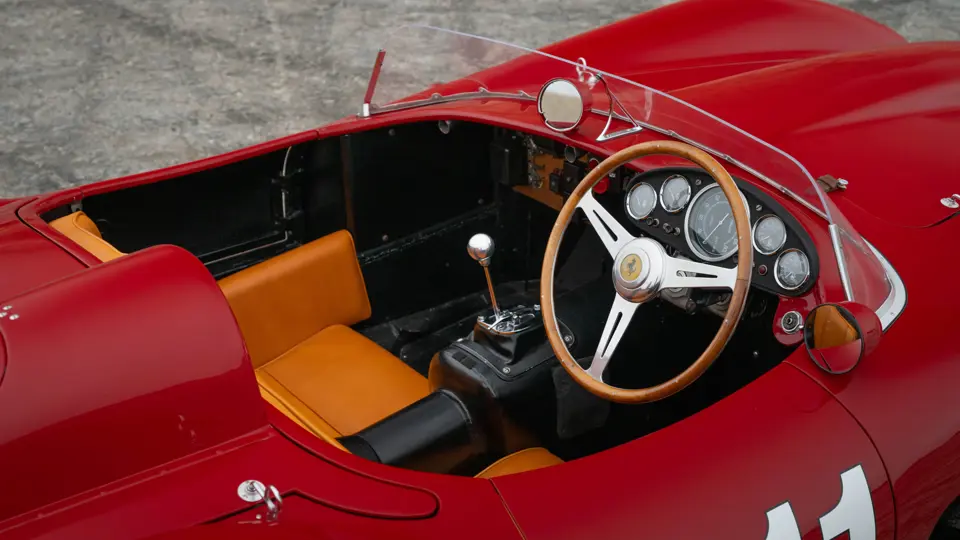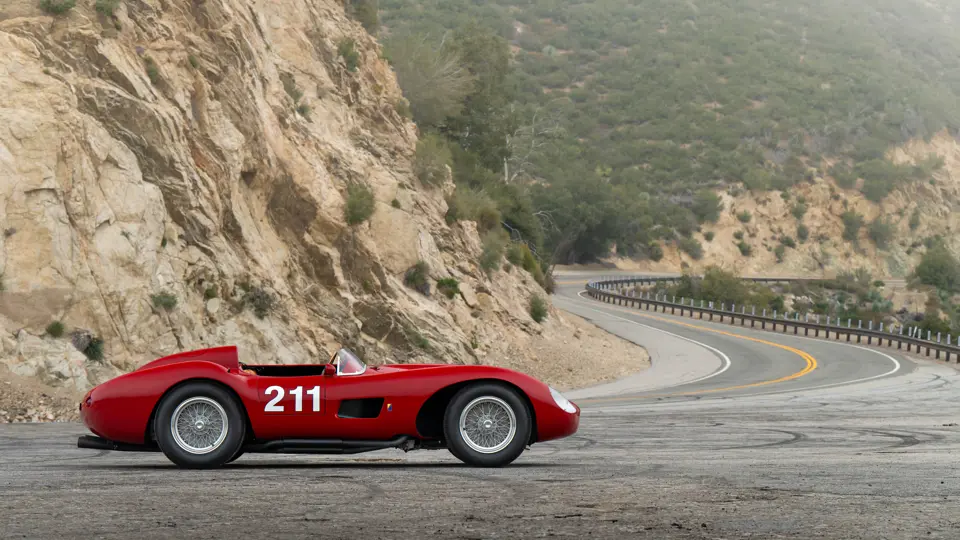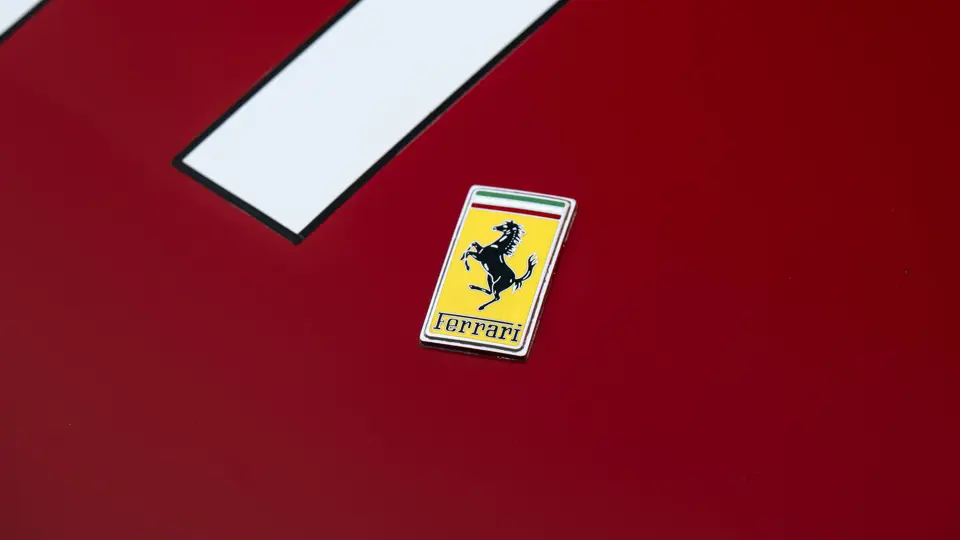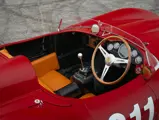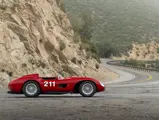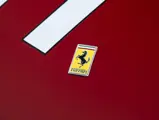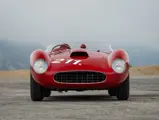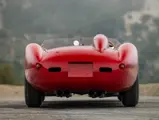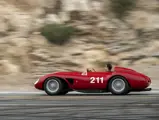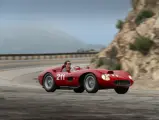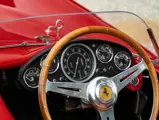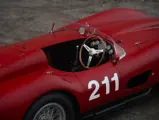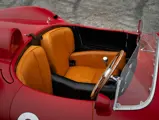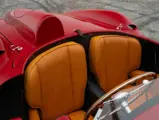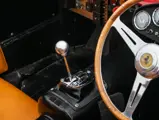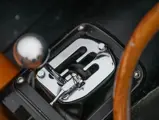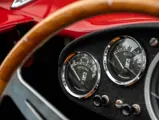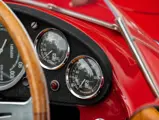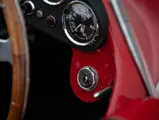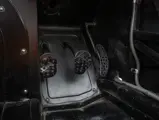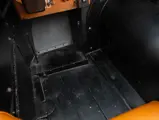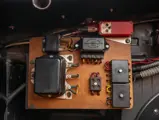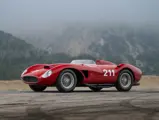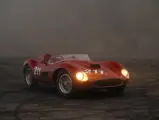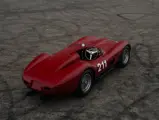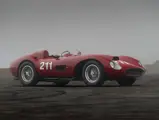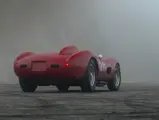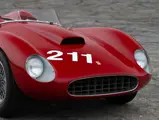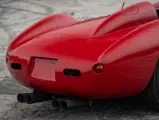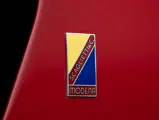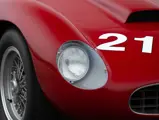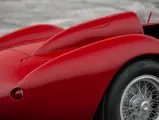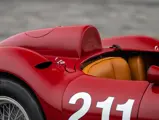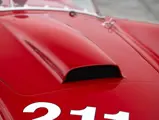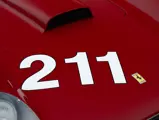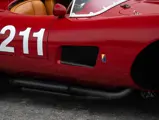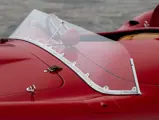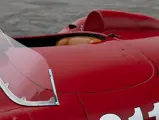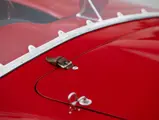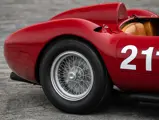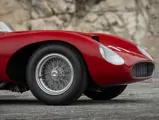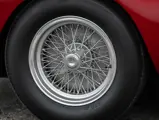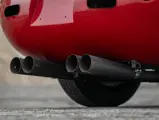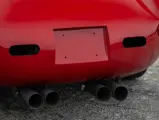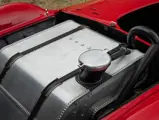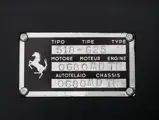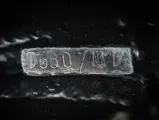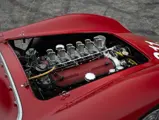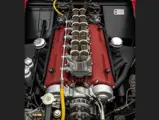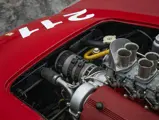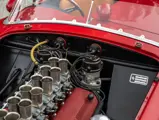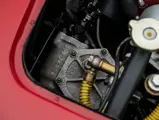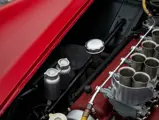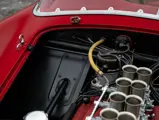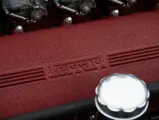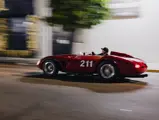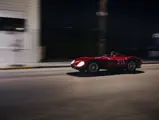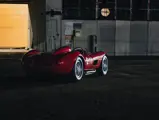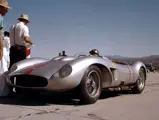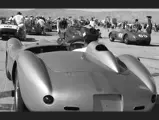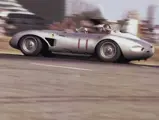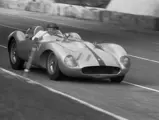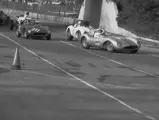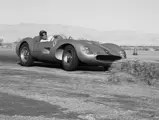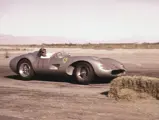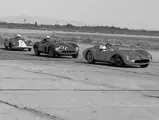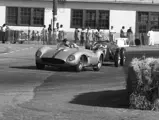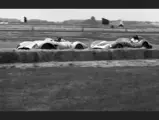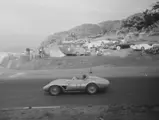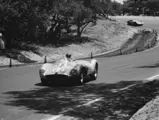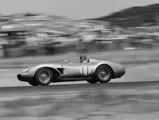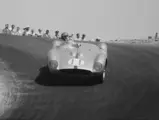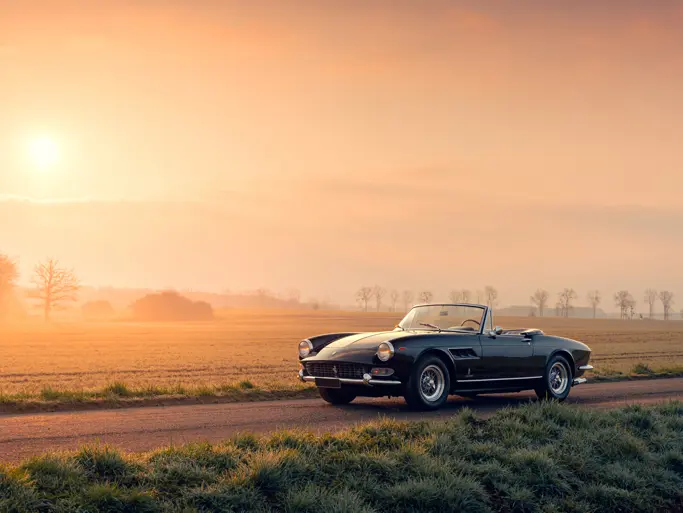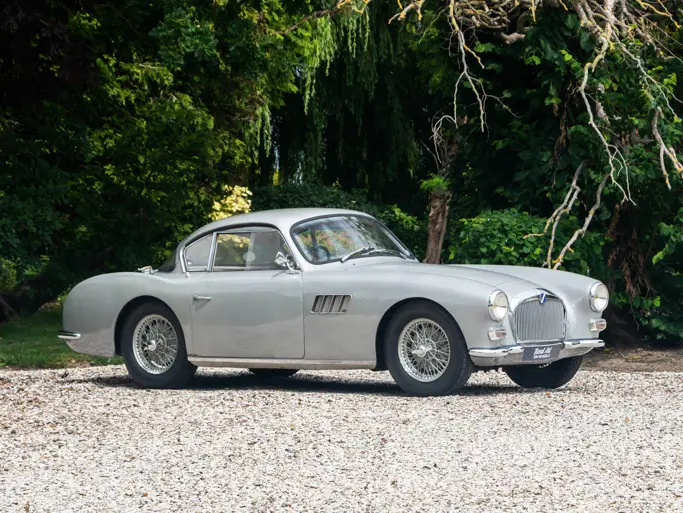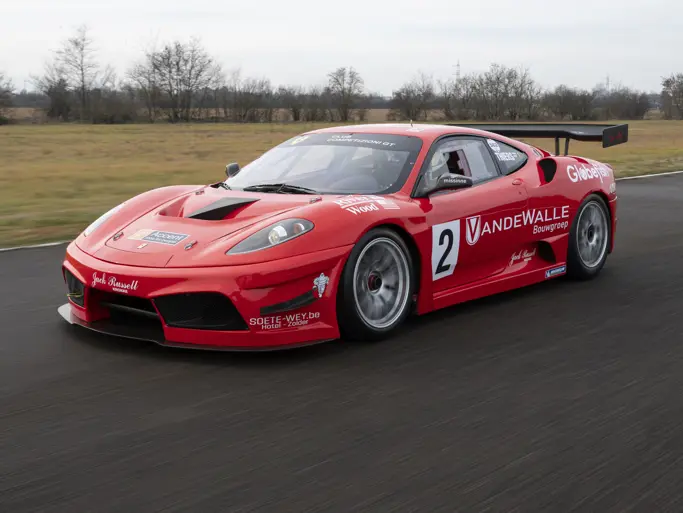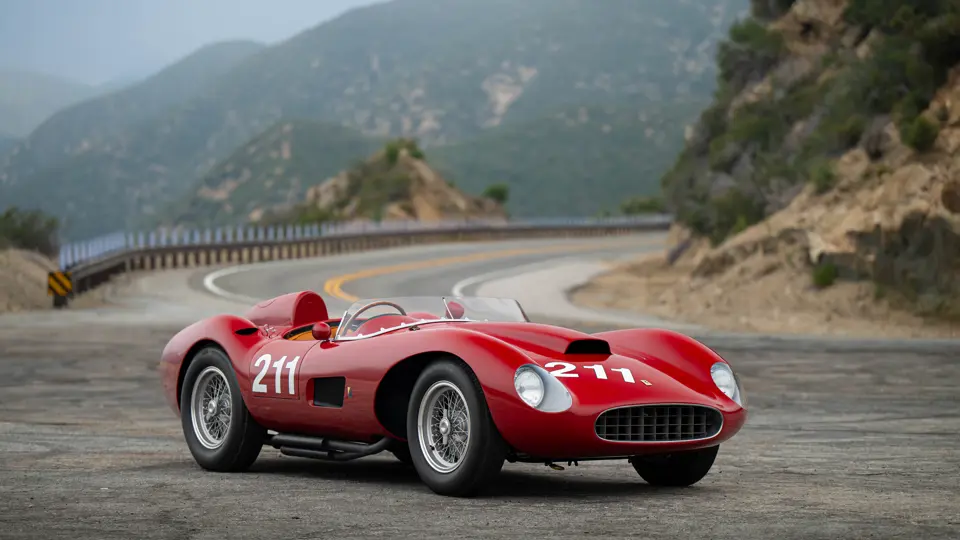
1957 Ferrari 625 TRC Spider by Scaglietti
{{lr.item.text}}
$9,000,000 - $11,000,000 USD | Not Sold
{{bidding.lot.reserveStatusFormatted}}
- One of only two examples factory-equipped with the larger 2.5-liter engine; the ultimate version of the early Testa Rossas
- Widely considered one of the most beautiful body designs ever created
- Originally owned and driven in competition by the highly influential Ferrari distributor and racing impresario John von Neumann
- Achieved 21 top-three finishes, including 10 overall or class victories among over 40 period races
- A true icon of the California racing scene with a famous original livery
- Currently fitted with a roaring 3-liter Colombo short-block V-12 engine; accompanied by its original matching-numbers 625-specification engine
- Well-known ownership history, including a 30-year period of fastidious single-owner care
- Documented with period photos; copies of letters; and excerpts from Cavallino magazine, including a feature article by respected motoring author Michael Lynch
- An impossibly rare, exquisitely shaped, and powerfully specified touchstone of sports-car racing’s most glorious epoch
JOHN VON NEUMANN
To understand the 625 TRC’s place in Ferrari’s history, we need to start with the man who commissioned these cars and his pivotal role in bringing the Italian marque to California, one of the most influential markets for Ferrari at the time.
Born in Austria in 1921, John von Neumann’s father Heinrich was a prominent surgeon, and in 1939 the well-off family emigrated from Vienna to New York following Hitler’s rise to power. Fascinated by all things mechanical, particularly automobiles, von Neumann enlisted in the military and thanks to his fluency in several European languages, served in military intelligence for much of World War Two.
Relocating to the sunnier and altogether more optimistic climate of post-war Los Angeles, a young John kicked off his glittering career as a salesman with Roger Barlow’s International Motors. A skilled pilot, von Neumann was soon immersed in the burgeoning sports car scene and became a founding member of the California Sports Car Club.
Von Neumann’s fascination with Ferrari began in 1954 with the purchase of a secondhand 2-liter 500 Mondial, adding a dedicated showroom at 1767 N Cahuenga Boulevard to his rapidly expanding empire in 1957. Trading as Ferrari Representatives of California, von Neumann’s new venture was, along with Luigi Chinetti on the other side of the country, largely responsible for putting the Prancing Horse on the map in North America. Keenly aware of what his customers wanted, von Neumann is also often credited with a pivotal role in the development of Ferrari’s legendary 250 California Spider. A true legend from an era that formed the competition and commercial success that Ferrari enjoys today, von Neumann’s prowess on the racing track and in the showroom will forever go down in Ferrari history with the other great entrepreneurs and racers like Luigi Chinetti, Jacques Swaters, Georges Filipinetti, Colonel Ronnie Hoare, and Enzo Ferrari himself.
THE 625 TRC
Although the majority of Ferrari’s four-cylinder sports cars built in the period 1953–1957 were sold to privateers, competing for class wins on both sides of the Atlantic, a small number of special cars were built to contest for outright honors. Following the terrible disaster at the 24 Hours of Le Mans in 1955, the AC de l’Ouest announced the capacity for the prototype class would be restricted to 2.5 liters for the 1956 edition of the classic endurance race. Ever the opportunist, Enzo Ferrari married Lampredi’s proven and enormously successful Tipo 625 Grand Prix engine with Maranello’s latest four-cylinder sports racing model, the 500 Testa Rossa. Designed as a replacement for the 500 Mondial under the direction of the recently recruited engineer Vittorio Jano, the new model’s distinctive red crackle finish on the cam covers led to the now famous model name Testa Rossa (Italian for “Red Head”) being used for the very first time.
Uniquely bodied by Carrozzeria Touring, the three 625 LMs struggled against the more powerful Jaguar D-types after William Lyons convinced the race organizers more than 50 had been made to qualify for the production category (in fact, Gordini and Talbot were the only other manufacturers to adhere to the new rules) and co-drivers Olivier Gendebien and Maurice Trintignant did well to finish in 3rd overall.
When Ferrari updated the Testa Rossa to meet the new Appendix C regulations announced by the FIA at the end of 1956, the changes were largely cosmetic—and here, Scaglietti managed to create one of the best-looking Ferraris ever made. Just 19 were constructed, of which six went to North American customers, and they proved competitive in the Class E Modified category.
The idea of “hot-rodding” was very much alive in California during the 1950s, and looking to exploit the TRC’s sweet-handling chassis, John von Neumann approached Ferrari to build him a more powerful “hot-rod” version. Enzo once again turned to the race-proven Tipo 625 engine as the most expedient way to achieve his American customer’s goal. Von Neumann would ultimately order just two of these Italian hot-rods, and the extra engine capacity resulted in an impressive 25% increase over the standard 500 TRC’s output of 180 brake horsepower at 7,000 rpm. It should also be highlighted that Ferrari’s race department took this as inspiration and further developed the larger-capacity four-cylinder TRC into the legendary V-12-powered 3-liter 250 Testa Rossa. One of the earliest prototypes (0704) started life in a four-cylinder guise with a TRC-derived chassis, while the other (0666) looked virtually identical to the TRC. Ferrari took notice of how successful the 500 TRC was in its smaller engine classes on the track and knew they had the formula for a winning car with a larger engine transplant. Thus, the genesis of Ferrari’s greatest sports racer, the 250 Testa Rossa, can be found directly in the 500/625 TRC.
While the Factory prepared von Neumann’s pair of 625 TRC hot-rods, few could have predicted the incredible impact they would have on the global racing scene in the months and years to come. For 1957 John von Neumann was all set to go racing; pilots like Richie Ginther and Ken Miles (not to mention the team principal himself, an accomplished driver) were ready to go head-to-head with the best European exotics and American iron that entrants like John Edgar and Tony Parravano could muster. The new 625 TRC proved a race-winner from the outset, with von Neumann beating locals Julio Mariscal at the wheel of a Jaguar D-type and a young Ricardo Rodriguez in an OSCA at the Avandaro circuit near Valle de Bravo, outside of Mexico City, at the model’s maiden outing in April of 1957.
0680 MDTR
Completed on 26 June 1957, chassis 0680 MDTR was the latter of von Neumann’s 625 TRCs, and unlike the earlier car (0672 MDTR), he took delivery in Europe with the plan of contesting select rounds of the European Mountain Championship. Debuting at the Gaisberg hillclimb in his native Austria on 15 August, von Neumann’s time of 10 minutes, 29.2 seconds was good enough for 7th overall, and 10 days later at Lenzerheide in the Grosser Bergpreis der Schweiz, von Neumann achieved a 2nd in class with a time of 7 minutes, 23.6 seconds. Period images of both events confirm 0680 ran with the same Appendix C windscreen installed on all TRCs; the 625 is set apart from its 2-liter siblings by the distinguishing feature of twin humps on the bonnet to accommodate the larger engine.
Arriving in California soon afterward, 0680 was configured in von Neumann’s iconic livery of dark silver with a red center band, a driver’s side aero-screen, and passenger tonneau, and it initially wore the temporary Italian registration plate (BO 84689), a legacy from its European sojourn. The car was also fitted with red leather seats with classic white piping, a trademark seat for many of the 250 Testa Rossa customer cars. Making its North American debut at the inaugural meeting held at Laguna Seca in November 1957, 0680 was kept in reserve for the preliminary race, but von Neumann drove it to great effect in the main event, leading most of the race until gearbox trouble caused him to slow a few laps from the end—resulting in a hard-fought 2nd-place finish.
This would prove 0680’s only outing in California in 1957, but the sister car was raced with great success throughout 1957, achieving 15 victories across the West Coast and Nassau Speed Weeks. Respected journal Road & Track ran a road test on the 625s in their December edition, with von Neumann and Richie Ginther both rating the car as the “… best handling and easiest of all Ferraris to drive in a race.”
The following year proved pivotal in the 625 TRC’s history. Both cars were campaigned alongside von Neumann’s 250 Testa Rossas, ex-works 335 Sport, and ultimately the fearsome 412 Sport, another bespoke car built for the team. The von Neumann outfit would typically enter just one TRC at each event, with the second kept as a backup, and it has taken careful examination of period images to reveal which of the two cars appeared in each race.
Von Neumann personally favored 0680 over the other Ferraris in his stable for the first half of the 1958 season (including the first customer-delivered “pontoon” 250 Testa Rossa), finishing 3rd overall and 2nd in class at Pomona and 4th overall and 1st in class at Palm Springs in February and April, respectively, before breaking through for a maiden overall win driving 0680 in Hawaii the following month. The team principal again finished 4th in the main event at Santa Barbara in May before Richie Ginther took over the TRC at Laguna Seca in June, winning the SCCA Regional event and retiring at Vaca Valley in July. Von Neumann’s daughter Josie often drove in the Ladies Race, and she took victory at the wheel of 0680 at Vaca Valley.
With 0680 relegated to the role of team spare for the remainder of the 1958 season, a tumultuous period followed in which John and his first wife divorced and most of the Ferraris and the dealership ultimately passed to Eleanor. John meanwhile dropped the spare V-12 engine (0750) from his 3-liter Testa Rossa into 0672 over the winter months to create his famous hot-rod. After racing at Pomona and El Paso in February, the team had one final fling in Mexico, and images from the von Neumann scrapbook show both 0672 and 0680 were present at Avándaro. The latter was driven by Ginther, who was classified 5th overall, behind Josie in the silver 250 TR. Ginther drove 0672 at the Lago de Guadalupe on the outskirts of Mexico City the following month, after which the team disbanded for good, bringing to a close one of the most important chapters in Ferrari’s North American history.
Prior to selling the 625 TRC, the 2.5-liter engine (internal number 3) was removed from 0680. It went to Pete Lovely in Washington State, who installed it in Fred Armbruster’s Cooper Type 51 single-seater, the Anglo-Italian hybrid competing in the US Grand Prix held later in 1960. The TRC was sold, less the engine and transmission, to Stan Sugerman of Phoenix, Arizona and he had Jim Connor install the ubiquitous Chevrolet small-block V-8 in time for the CSCC race meeting held at Santa Barbara at the end of May 1960. Sugerman took delivery of a Maserati Tipo 61 (2452) in June 1960 for Connor to race; the older Ferrari was entered at Pomona that month for Chalmers Hall, but failed to finish due to a broken fuel line and spent the remainder of the year being repaired. Having obtained his racing license in April 1961, Sugerman began campaigning 0680 himself that year, and there are some lovely color images showing the still-silver Ferrari racing up and down the West Coast in the C-Modified category.
Passing to well-known Corvette racer Emery Leroy “Red” Faris of San Leandro in August 1961, 0680 continued its racing career in the hands of the owner, as well as another talented Corvette exponent, Bill Sherwood, into 1962, the latter finishing 2nd overall in the Pacific Coast Regional Class C-Modified championship that season—no mean feat for a car now in its fifth season.
The TRC was not done yet, either. Danny Raffetto of Placerville took over in late 1963 and campaigned the Ferrari, by now repainted red, with some success for another three or four years. Randy Cook’s book Bowtie Ferraris has some fantastic period images of the car sitting on Raffetto’s driveway.
From Raffetto the Ferrari passed to Gerry Sutterfield, then a Volkswagen dealer out of Mount Vernon, Ohio, in May 1969. Sutterfield, who later relocated to Florida and became a well-known collector of Ferraris as well as one of the original Board members during the founding of the Ferrari Club of America, recalls thinking it was a 3-liter Testa Rossa until he removed paint and located the serial number. Following an appearance at an early FCA event held at Mid-Ohio in August 1969, Sutterfield subsequently offered the still-Corvette-powered Ferrari for sale in Prancing Horse magazine.
The next owner was a gentleman by the name of Phil Sledge from Burlingame, in the Bay Area of California. By the early 1970s, 0680 ended up with Richard L. Haskell, a professional ice skater then living in Salt Lake City, Utah who owned various Ferraris (including a 275 GTB and 246 GT Dino) around the same time.
Lawyer and pioneering Ferrari collector Ed Niles was 0680 MDTR’s next owner. A meticulous record-keeper and also a founding member of the FCA, Niles bought the car from Haskell on 22 February 1972 and loaned it to Miller historian Mark Dees for the Virginia City hillclimb. Niles sold the TRC to John McCain on 31 July 1973, who in turn passed it on to San Francisco-based collector Sid Colberg in 1976 before ending up with Bob Taylor, who ran a shop in the Bay Area specializing in early Ferraris. Taylor reportedly installed an outside-plug Tipo 128F V-12 engine and had the car on the market in mid-1979. Photos of the car during these periods are contained in the extensive history file accompanying this car.
Most old race cars wait patiently for a savior to rescue them, and in 0680’s case, that savior was Dr. Michael Callaham. Attracted by the TRC’s glorious lines, Dr. Callaham took over the project in 1981 and an epic restoration ensued, taking almost five years before the Ferrari was returned to its former glory. Based on the available evidence, including letters from John von Neumann’s secretary, former mechanic Harold Broughton, and even Ed Niles, Dr. Callaham understandably believed his 625 was actually the car that von Neumann raced with the 3-liter V-12 engine and duly set about returning the car to this configuration, using a 250 engine block and four-speed gearbox. Meticulously rebuilt by David McCarthy at the renowned Phil Reilly-run shop with larger Testa Rossa valves and roller cam followers, it was topped by six Weber 40 DCN carburetors; a spare wet-sump was obtained from fellow TR owner David Love. Although more recent evidence shows 0672 MDTR as the chassis which received the V-12 250 TR engine 0750, the work conducted by Dr. Callaham was to an extremely high standard, and makes 0680 a magnificent car to drive.
Almost 20 years since retiring, 0680 returned to the tracks of California in 1985, becoming a regular fixture at the annual Monterey historic races held at Laguna Seca right up until 2011, along with numerous appearances at Sears Point and even rallies like the Colorado Grand. The Ferrari may have been a highly competitive vintage racer, but this did not stop it receiving an invitation to appear on the lawn of the fabled Pebble Beach Concours d’Elegance in 1995, part of the marque celebrations that year.
Dr. Callaham never gave up in his quest to reunite 0680 with its proper motor, and this dream was finally realized in the months leading up to the sale of the TRC in 2012. Following its stint in the rear-engined Cooper, the engine spent decades in Pete Lovely’s collection in Tacoma, Washington before being sold through broker Mike Sheehan to collector Nick Colonna in 1998 as a spare for his 500 TRC (chassis 0670 MDTR). Both 0670 and the spare engine joined Chris Cox’s collection in 2006, and he kept the engine (along with a spare gearbox with internal no. MD 16) after selling the TRC in 2008, until a deal was struck to reunite the engine (together with aforementioned gearbox no. MD 16) with 0680 MDTR. The history of the original engine has been extensively documented, and a file highlighting its location throughout the years is available in the accompanying history file for this car.
Joining one of the most important Ferrari collections ever assembled in 2012, sitting alongside several of its compatriots from the 1950s California racing scene (including von Neumann’s earlier 500 Testa Rossa), 0680 has been hidden from public view for more than a decade.
IN CONCLUSION
As a member of the illustrious Testa Rossa family possessing a clear, unbroken chain of ownership from John von Neumann to the present custodian, 0680, along with its “sibling” 0672, are among the most famous of all West Coast racing Ferraris. The epitome of California hot-rod culture is captured with these cars, most notably with 0672 receiving the V-12 250 TR engine—but von Neumann’s foresight to request a larger 2.5-liter 625 engine for 0680 ignited huge success on the racing track, with the car achieving 21 podium finishes and 10 overall or class victories across over 40 period races.
A winner in period and proven vintage racer, the 625 TRC offers a mouth-watering range of possibilities for the new custodian. With extensive service records on file, including an engine service by famed shop Patrick Ottis Co. in 2011 which showed an incredible power output of 322 horsepower on the dyno, 0680 is perfectly set-up for a return to the racetrack or rallies like the Colorado Grand. Likewise, the prospect of restoring the car back to its iconic von Neumann livery and four-cylinder Tipo 625 configuration, using the original engine supplied with the car, could transform 0680 into an absolute star at the most prestigious concours events on the planet.


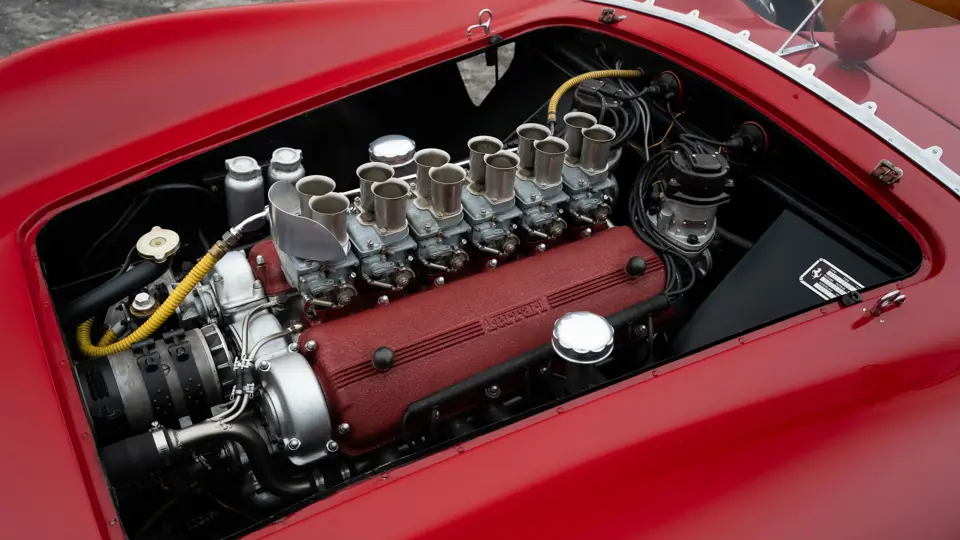

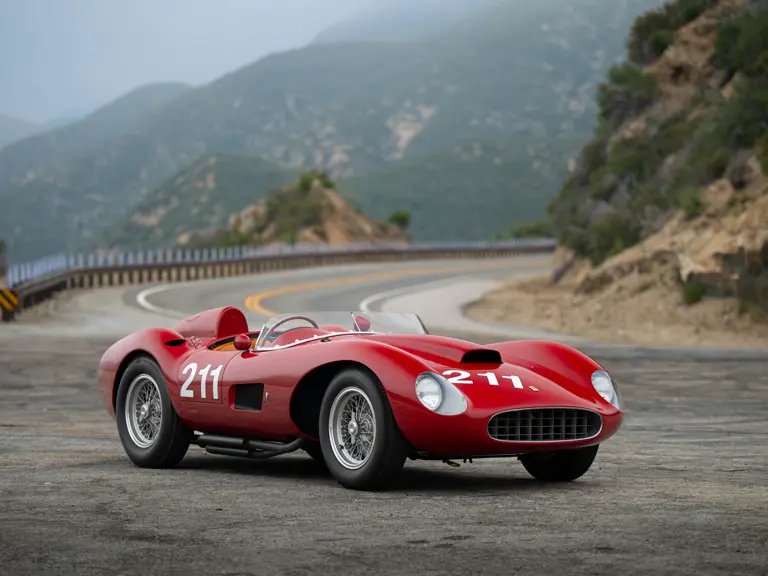
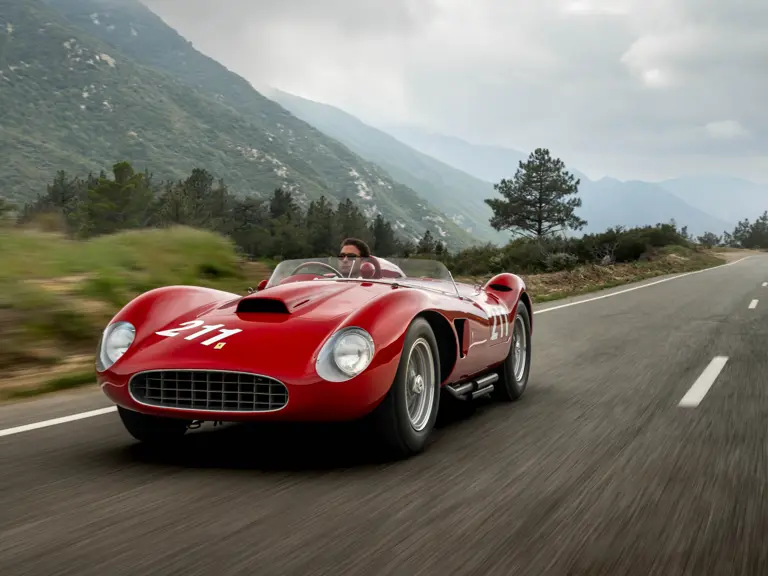
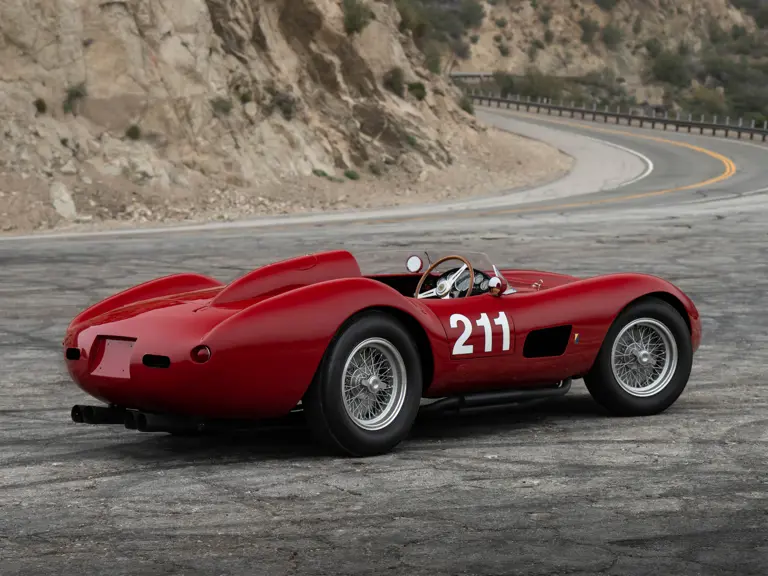
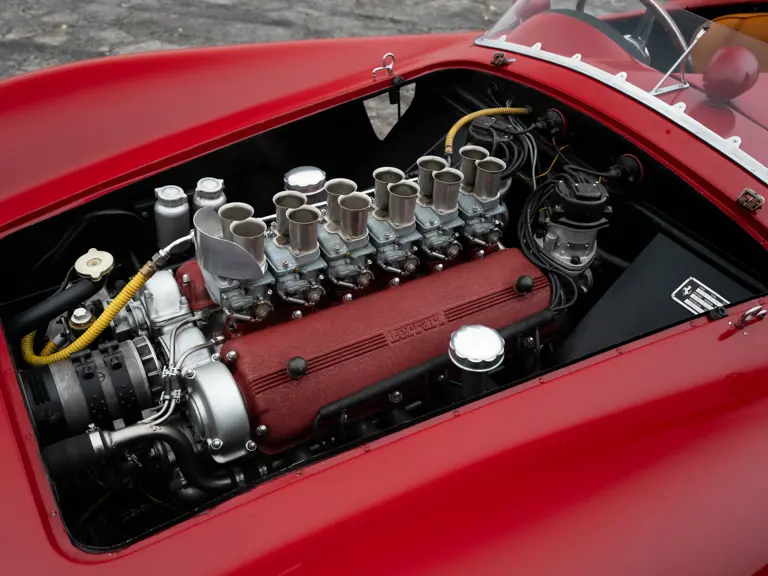
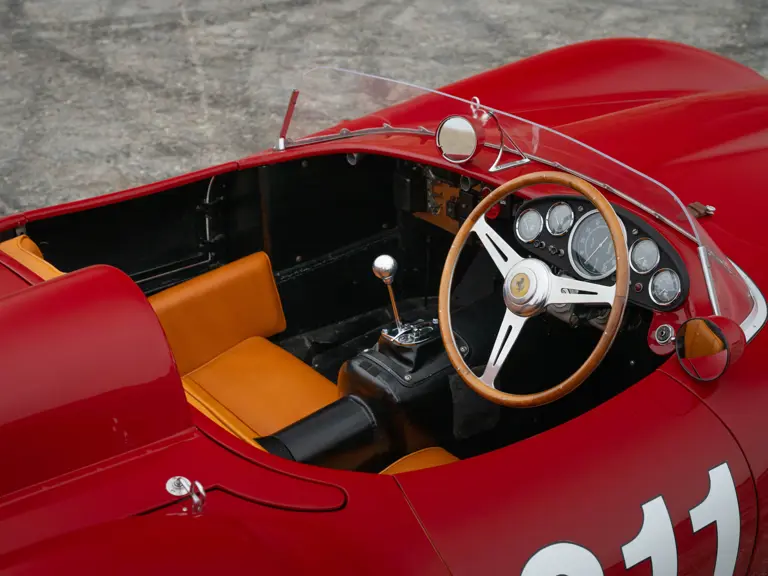
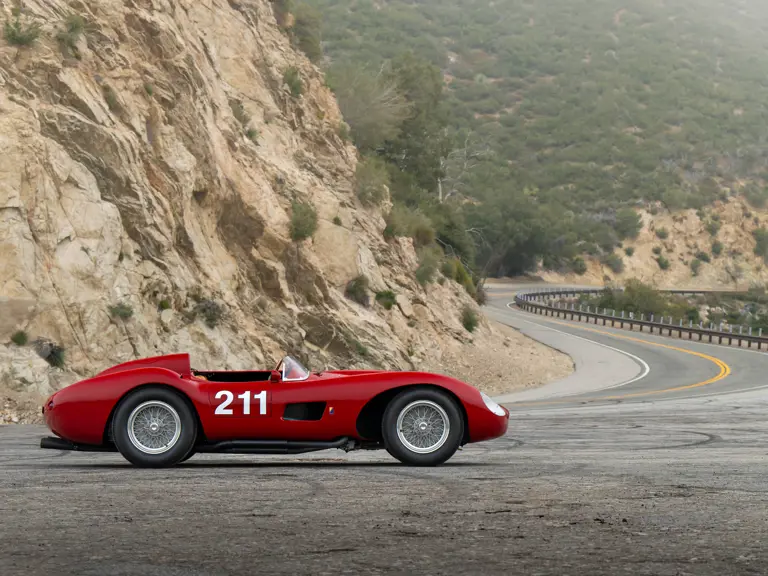
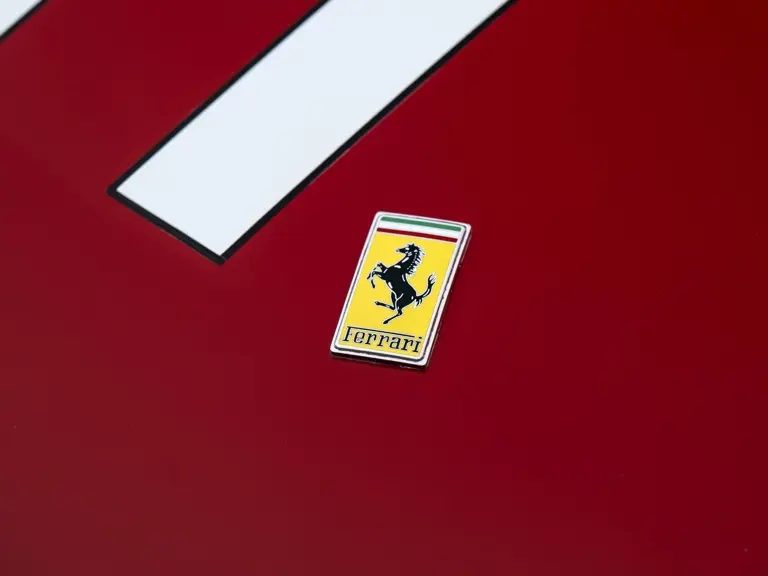
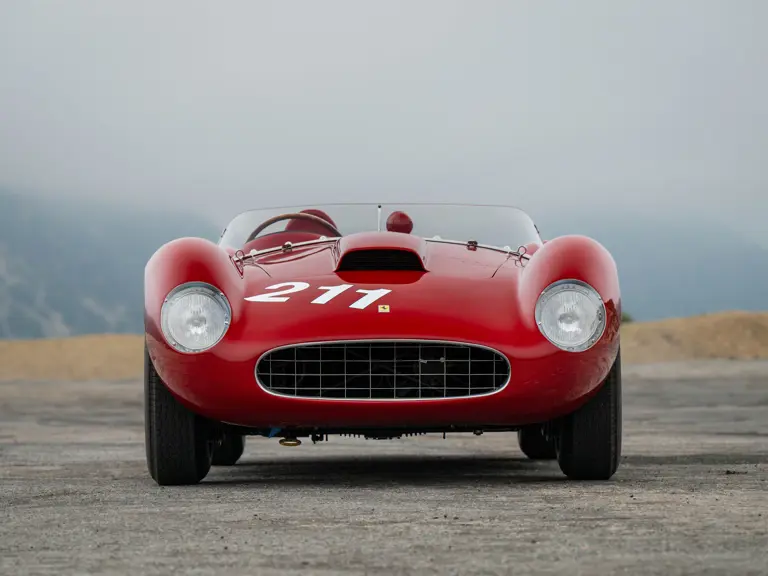
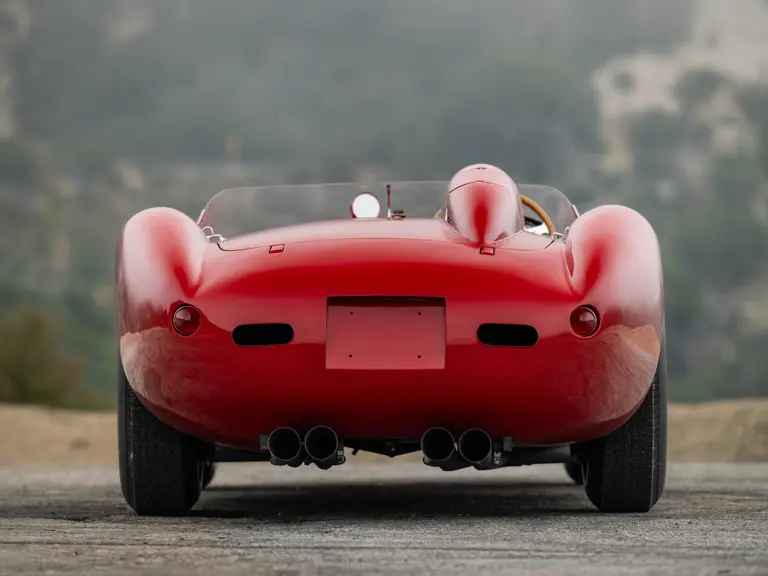
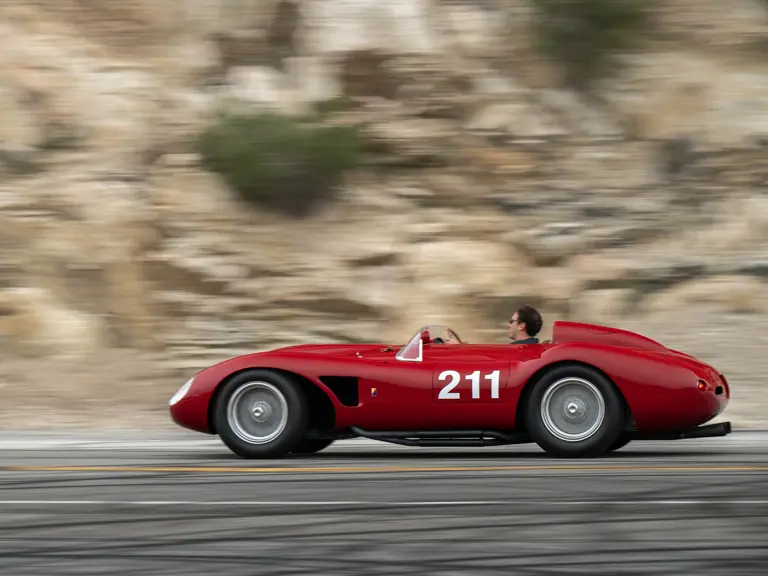
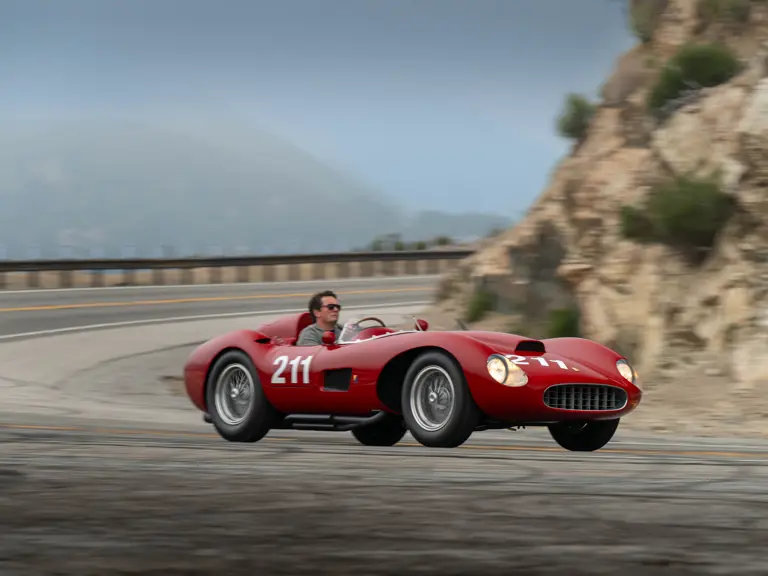
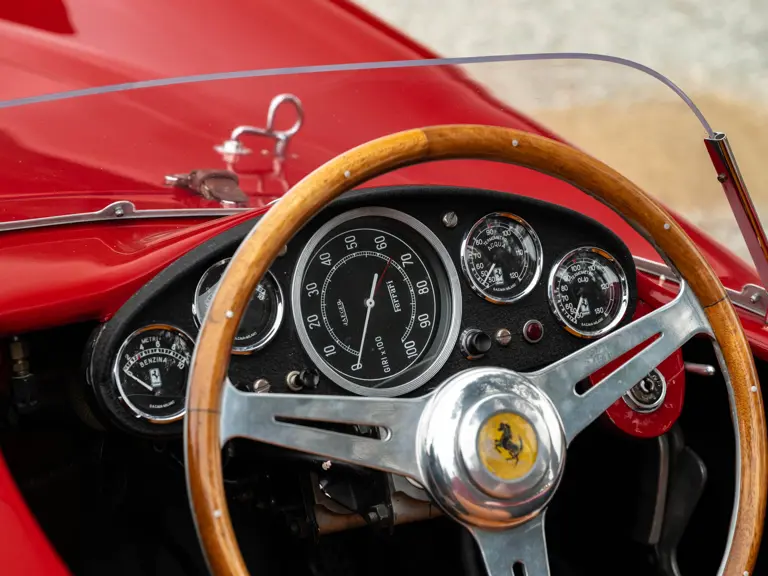
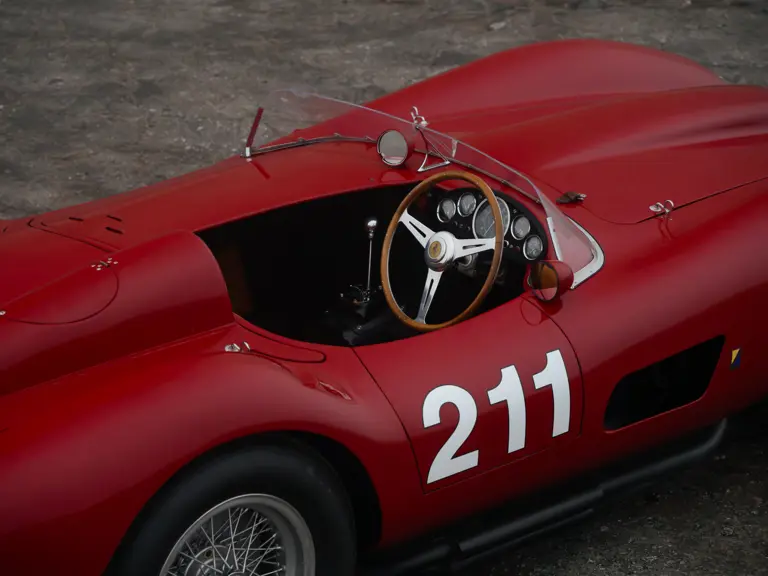
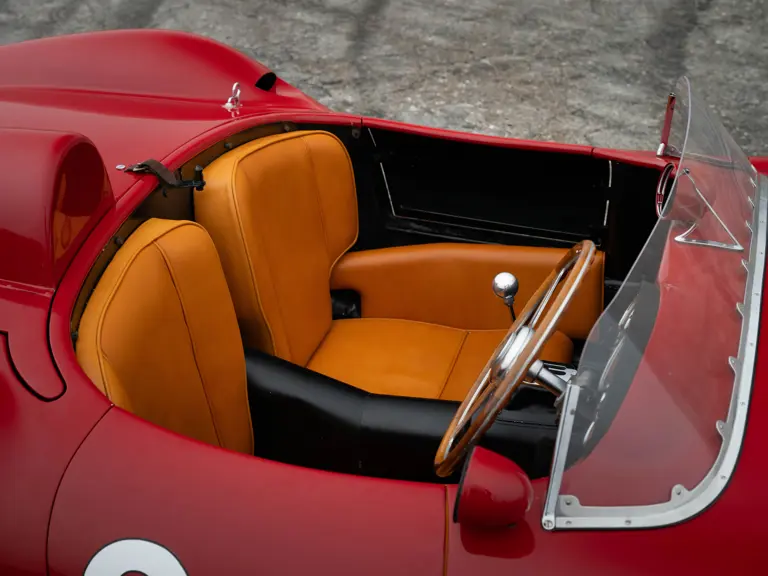
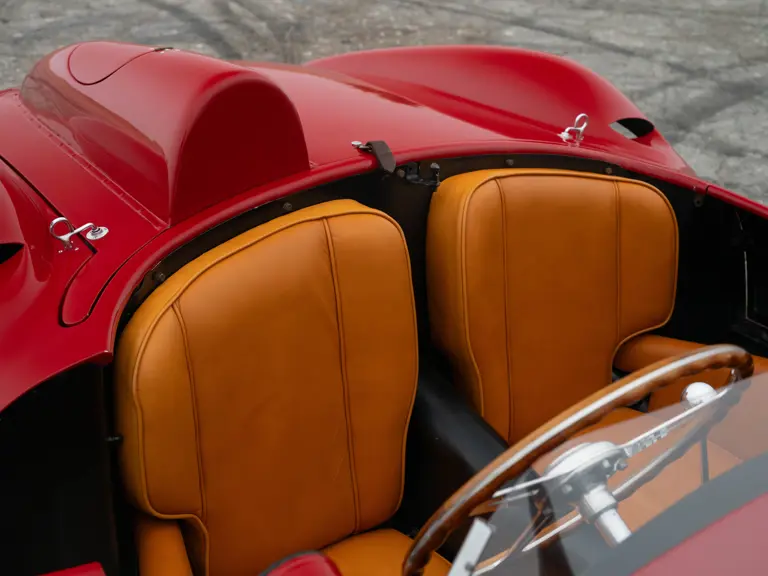
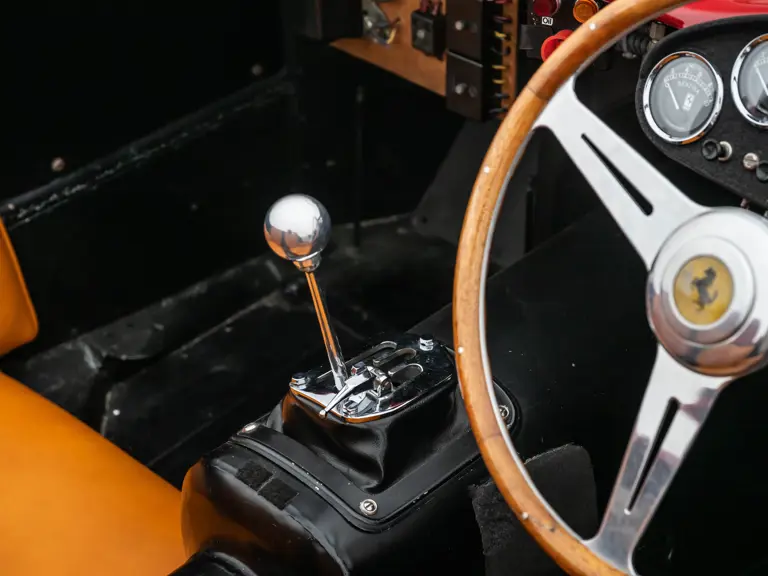
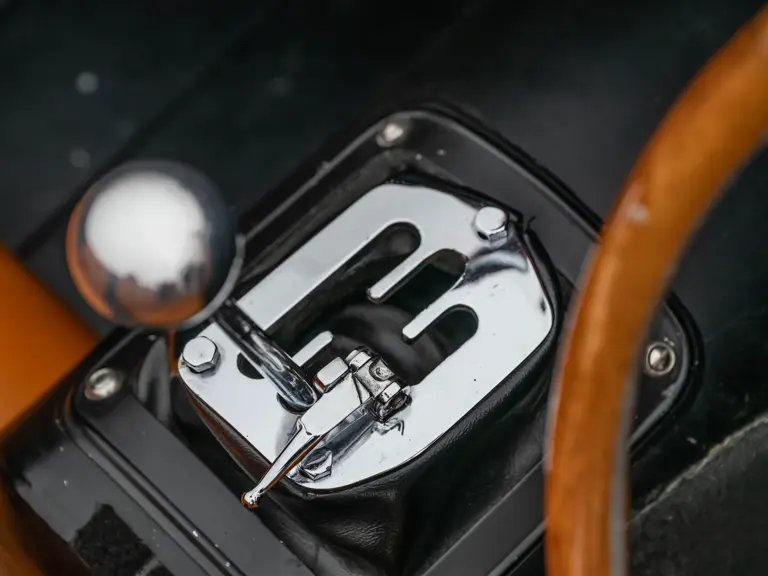
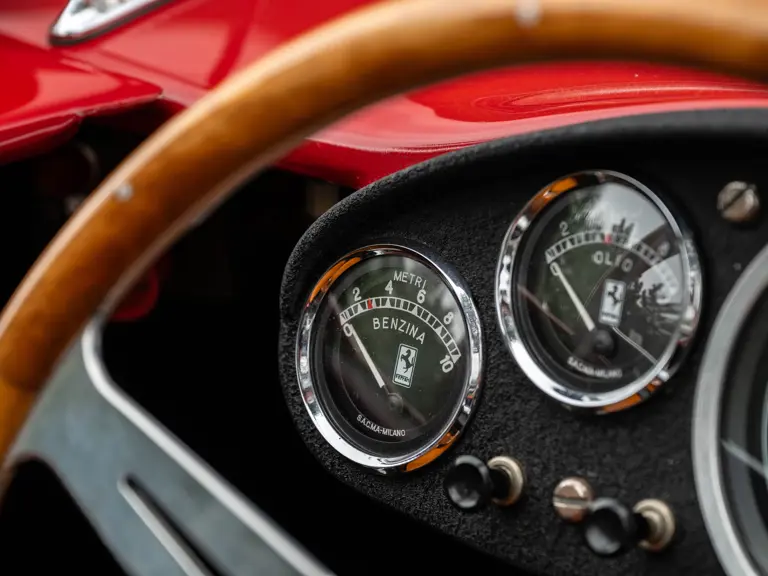
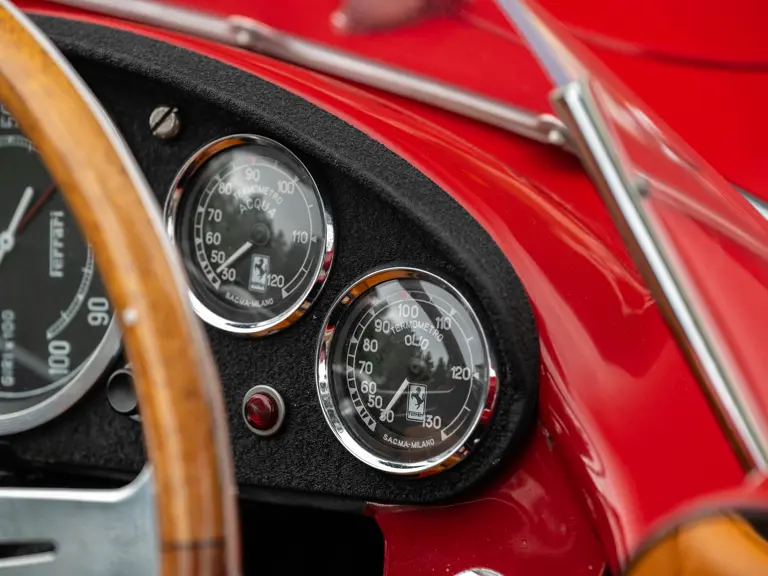
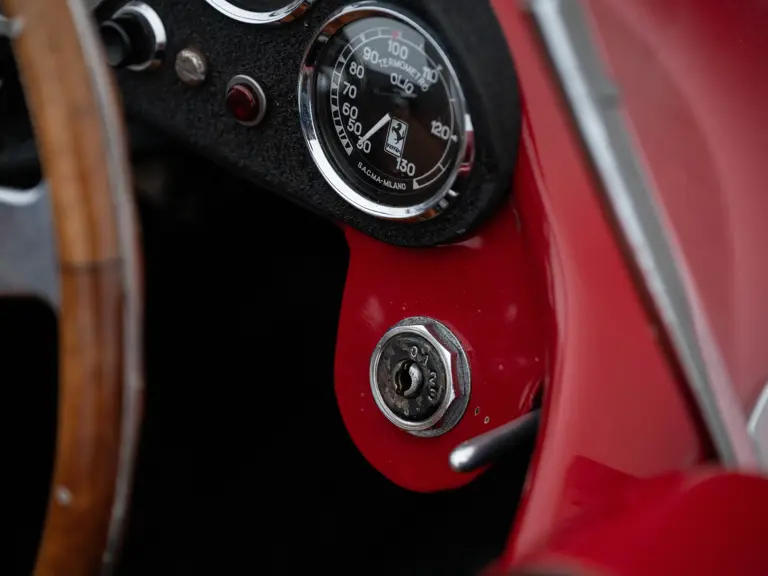
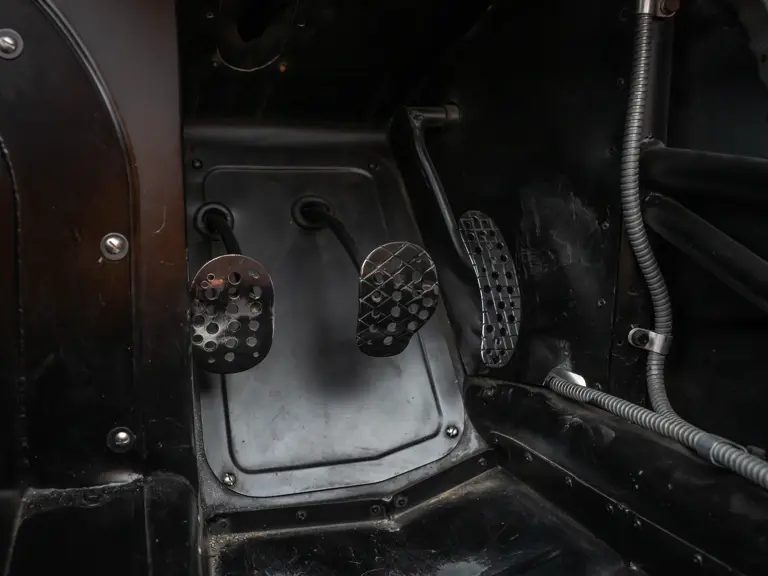
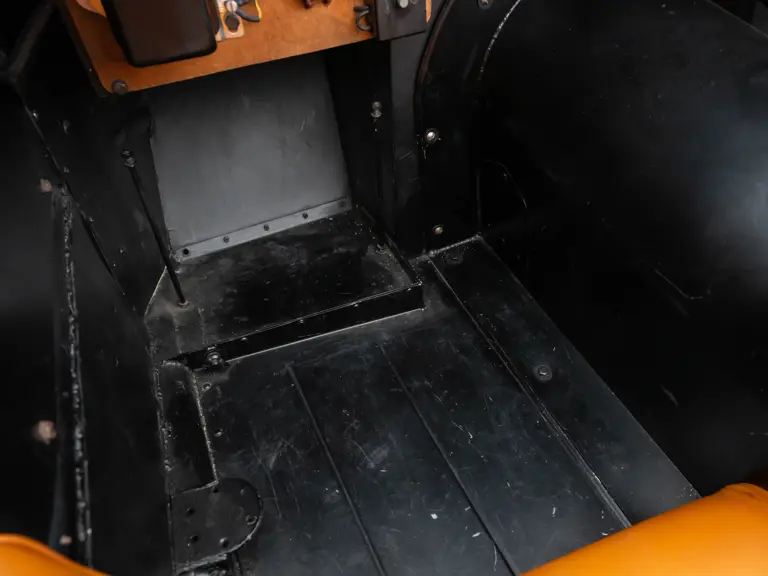
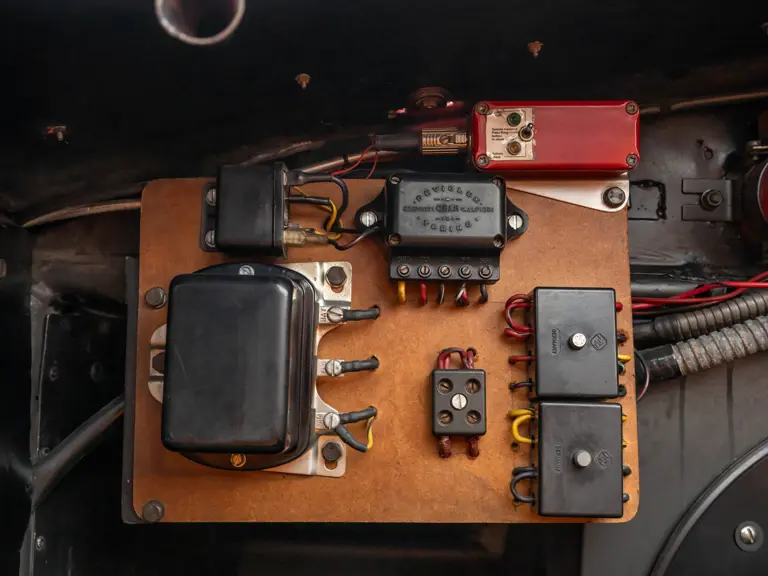
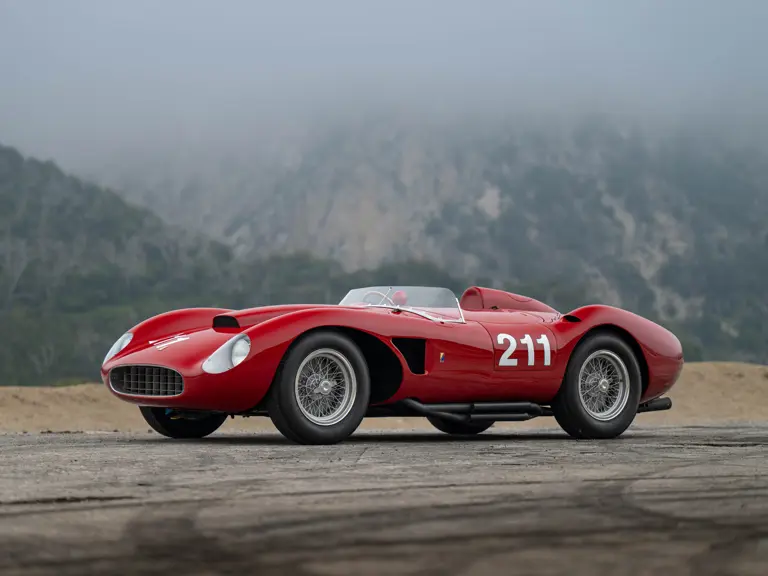
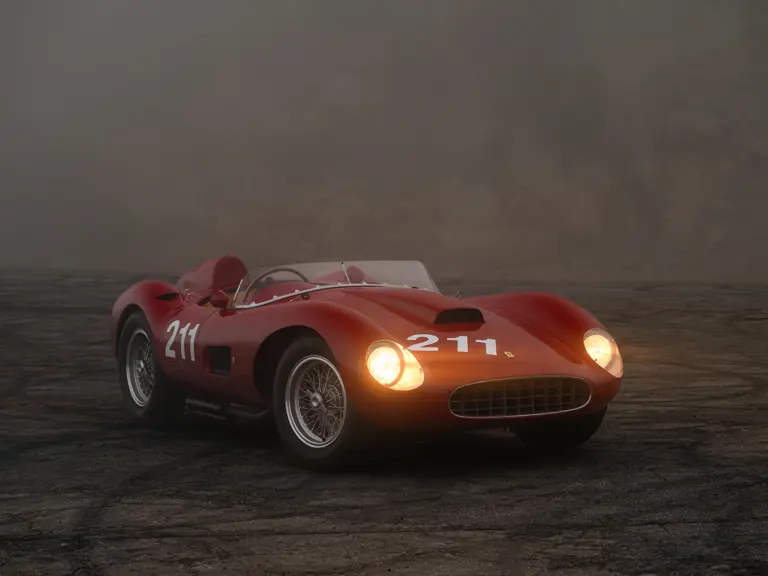

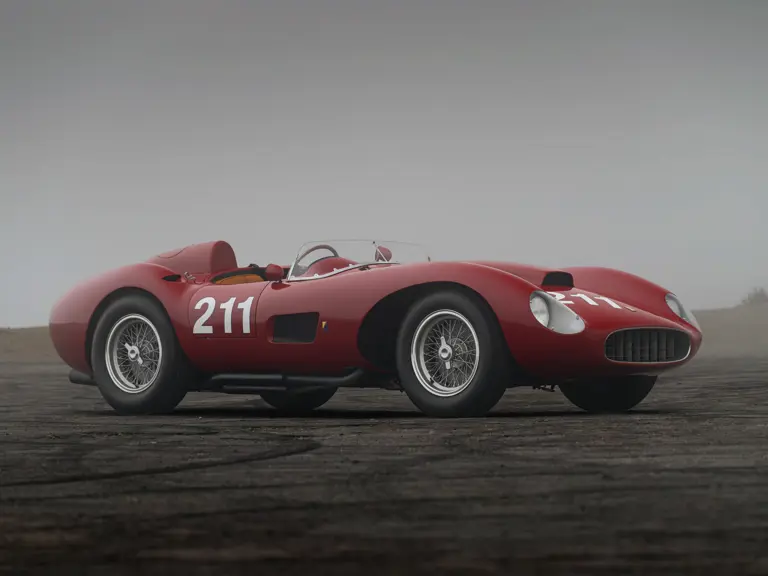

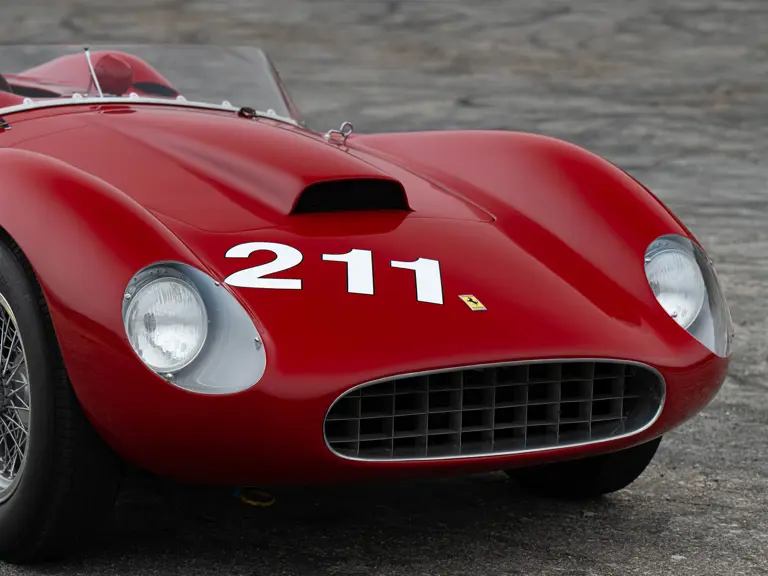
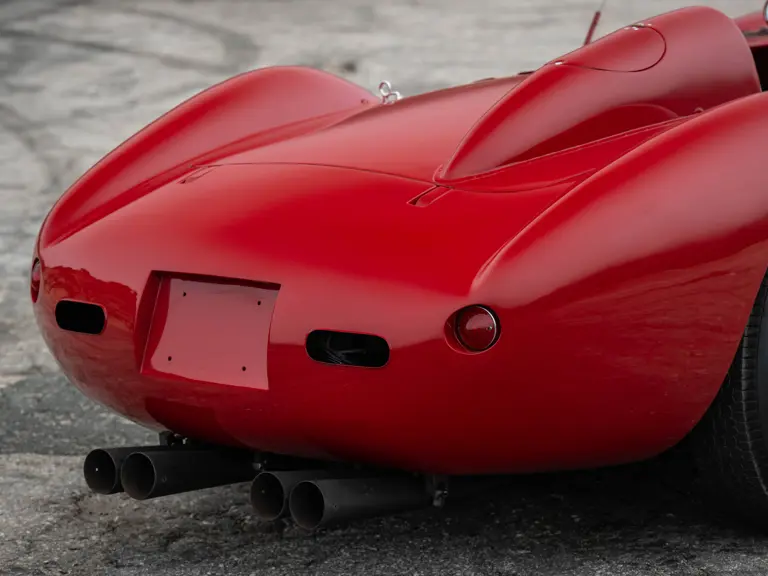
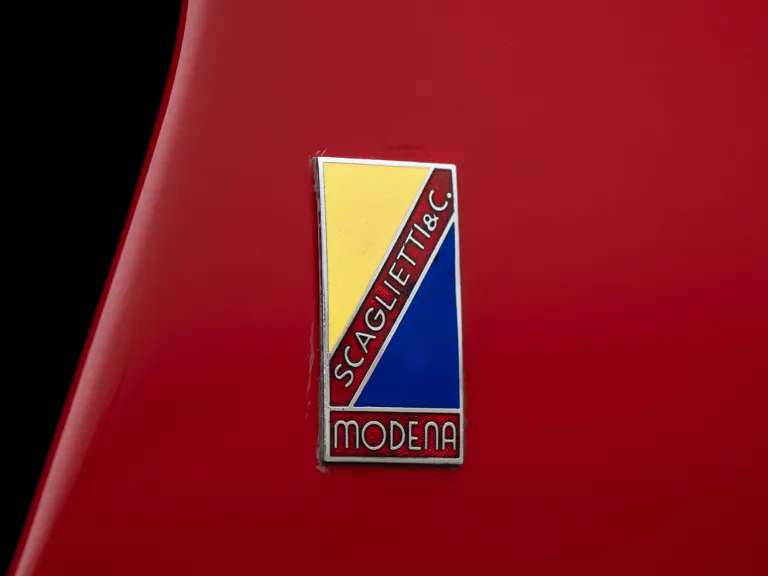
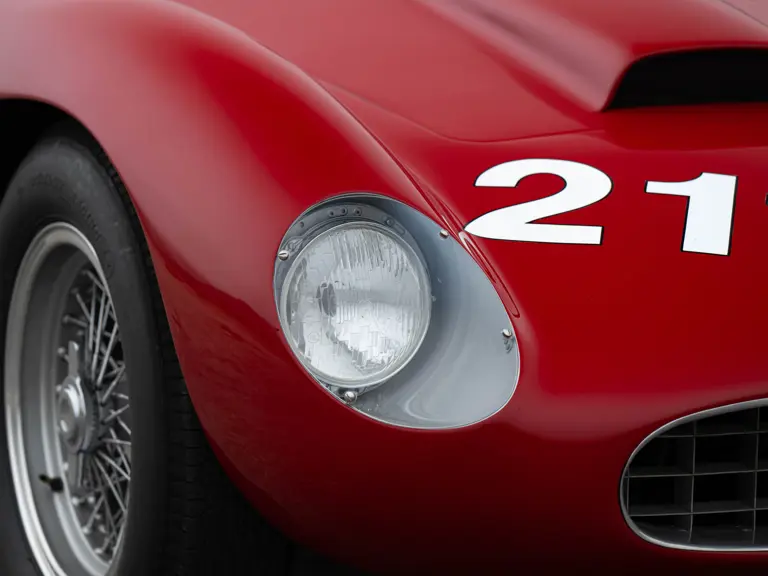
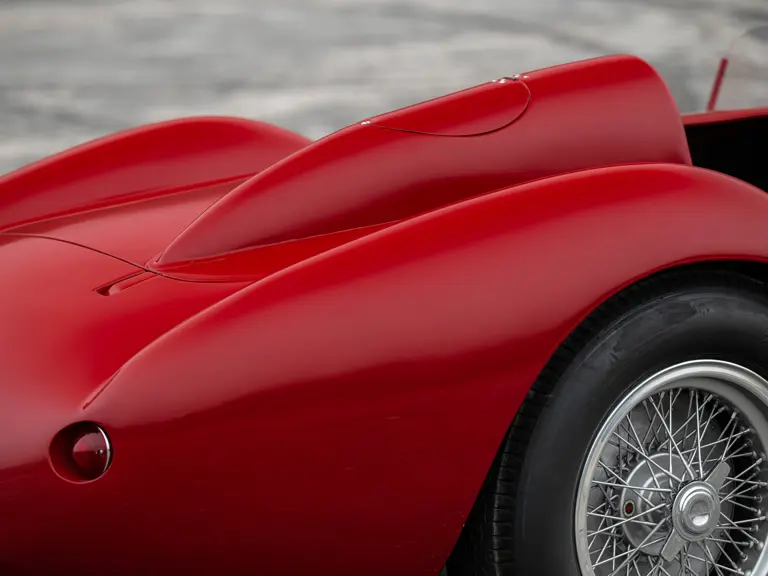
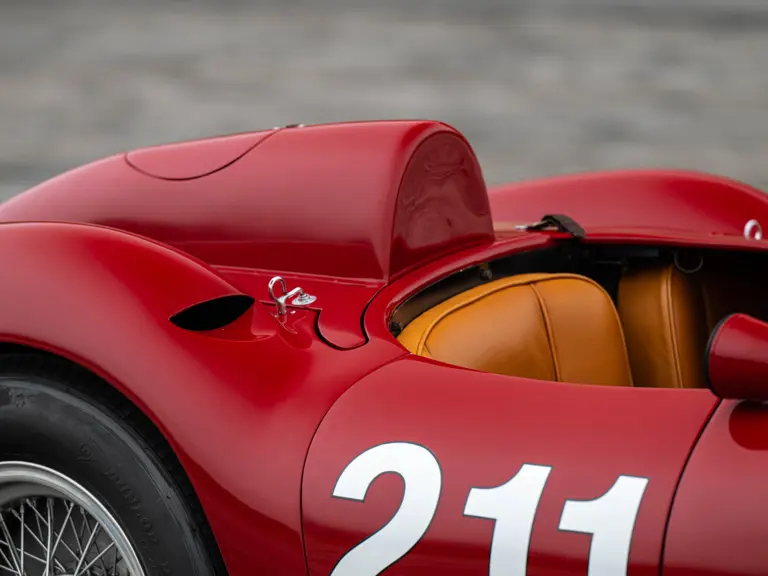
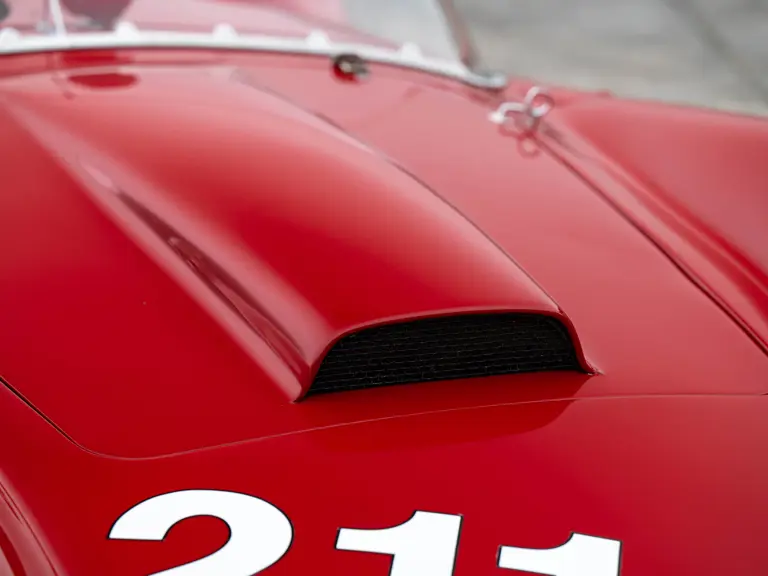
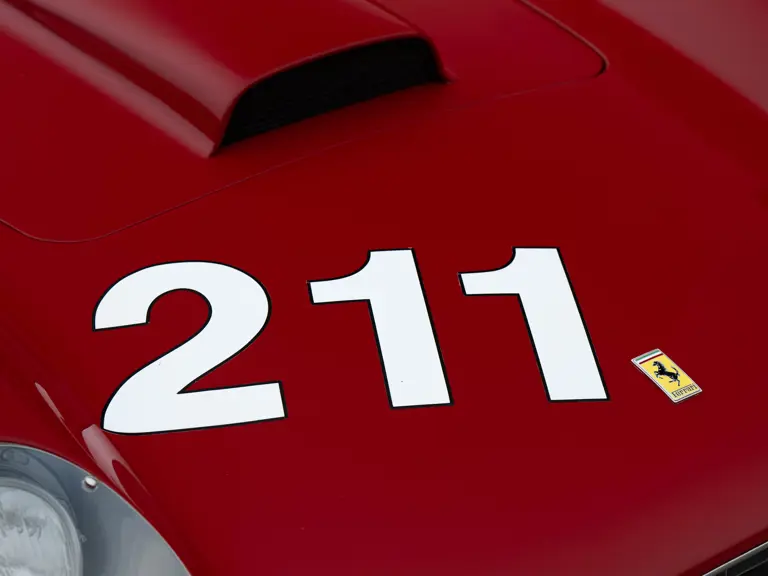
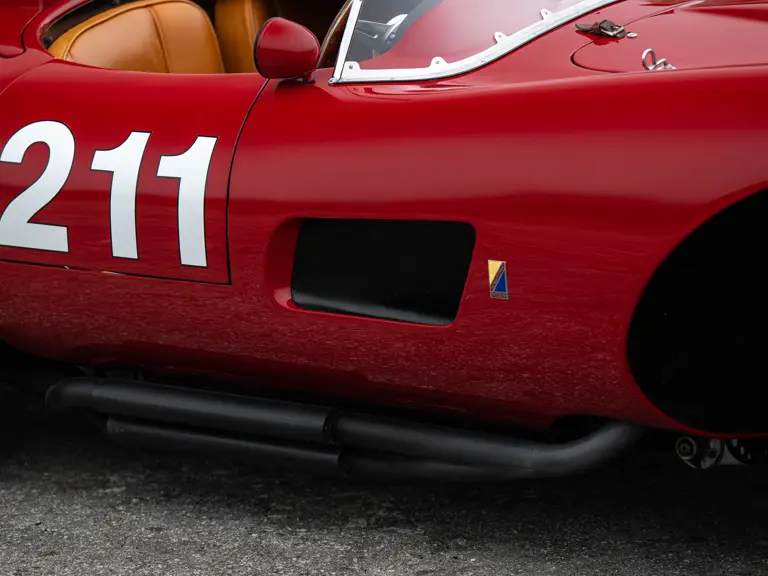
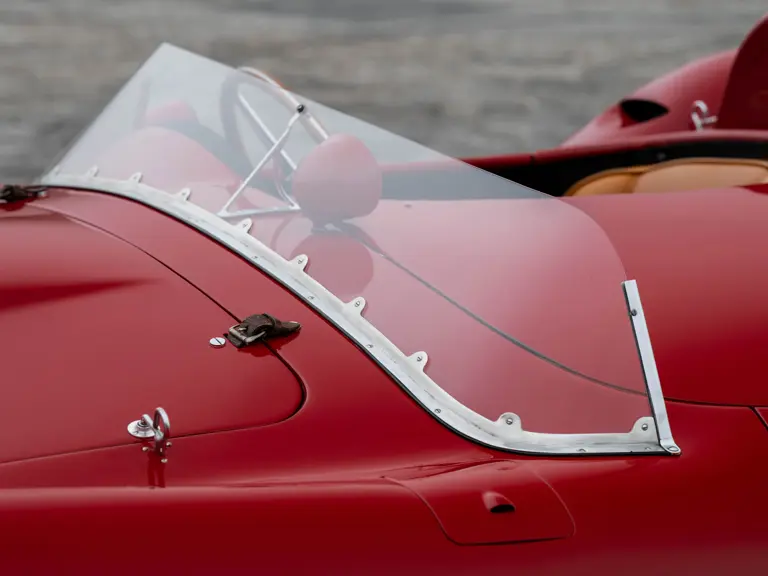
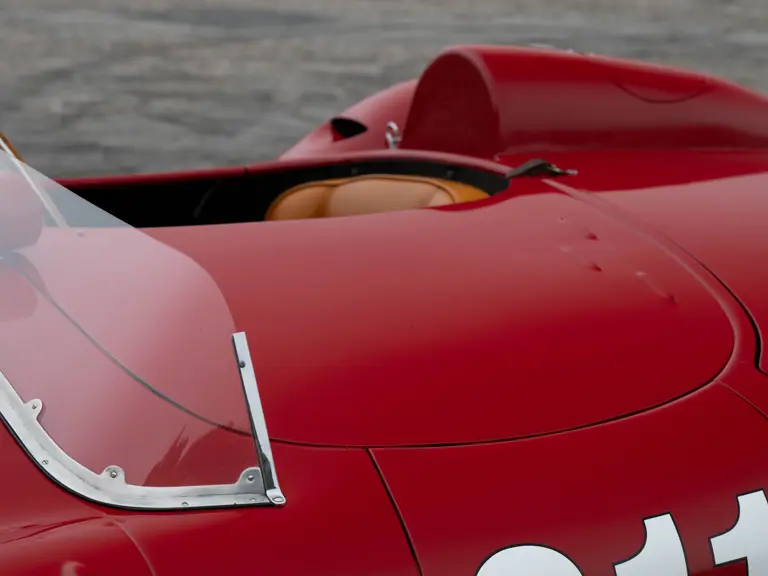
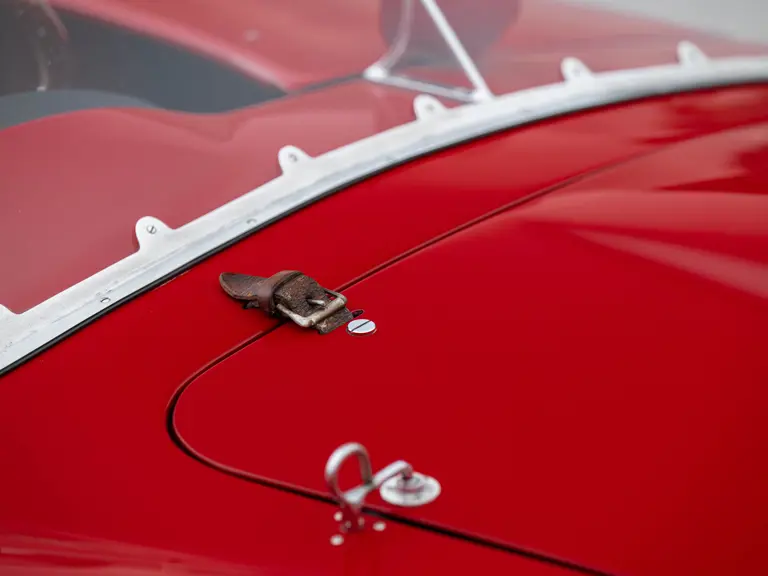
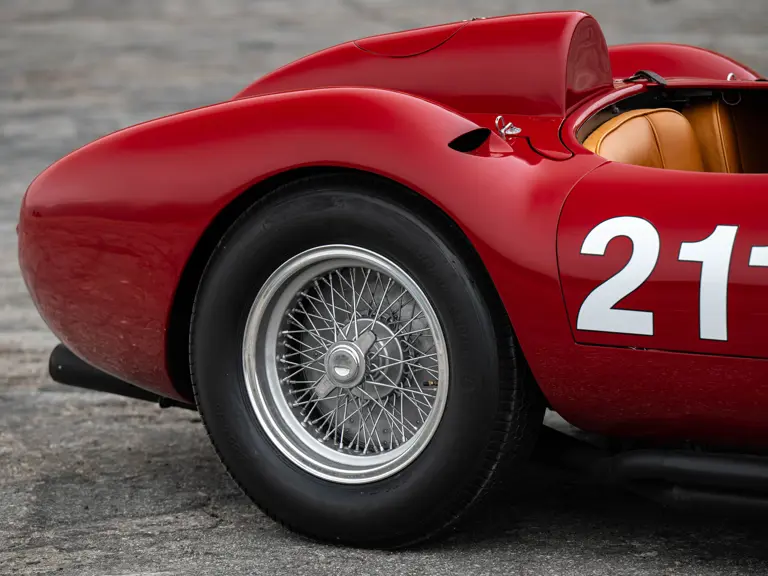
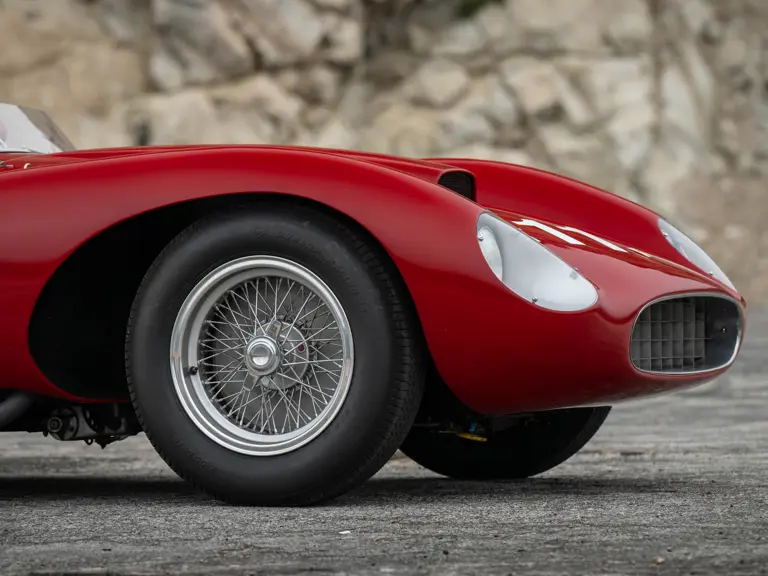
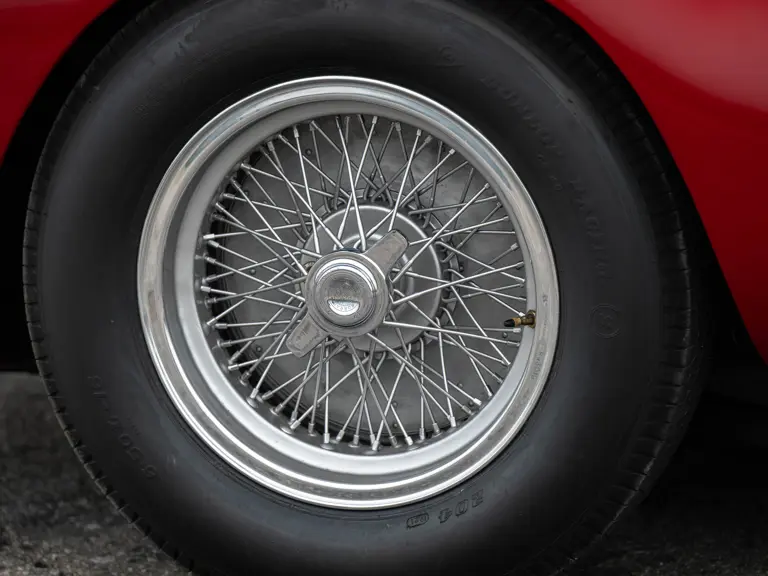
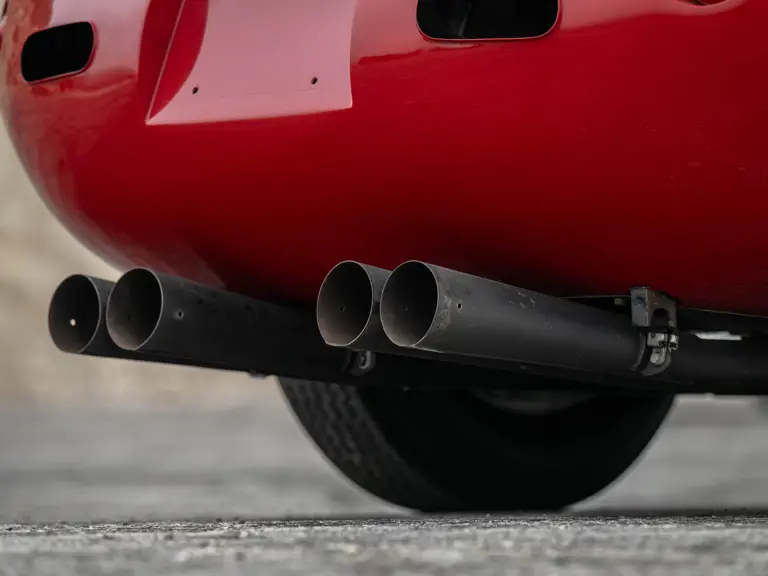
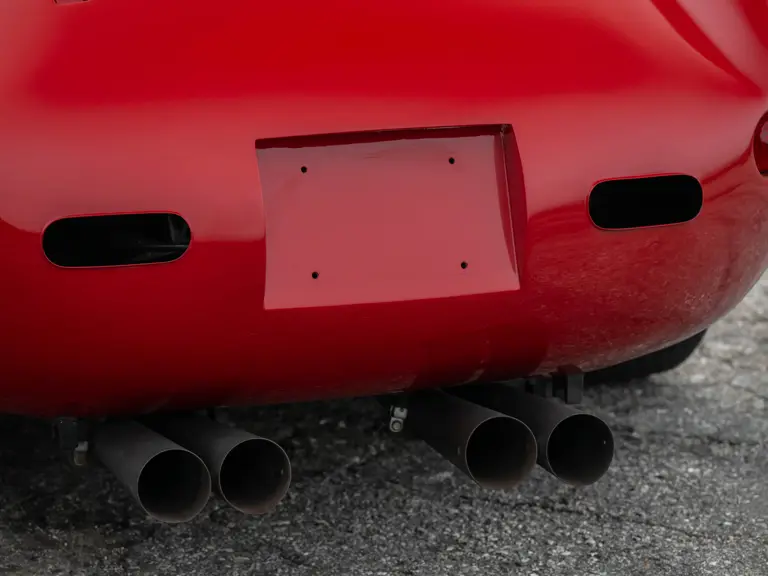
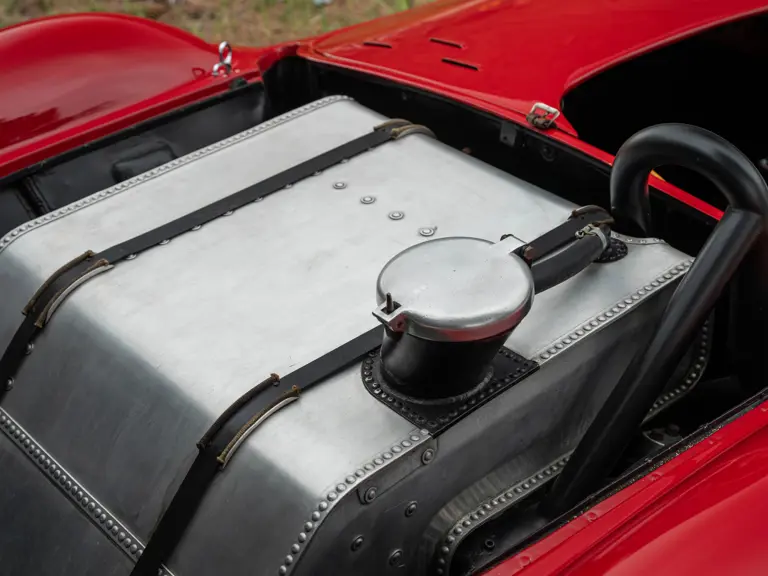
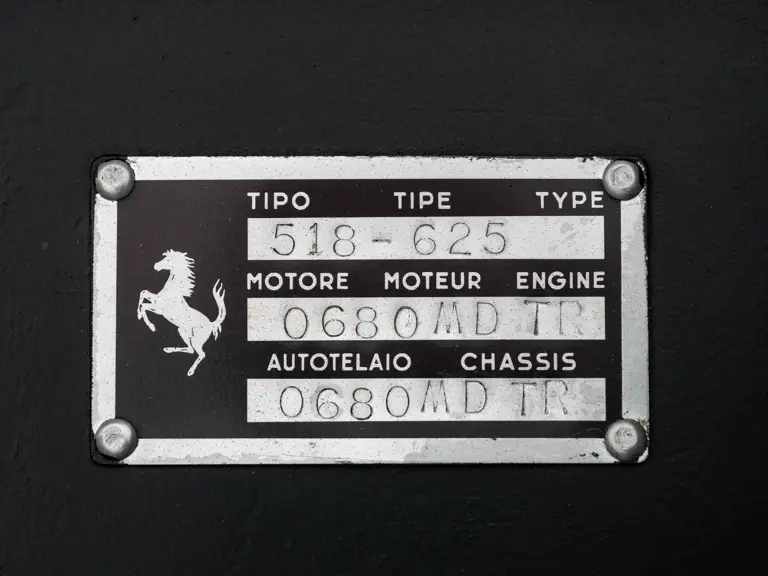
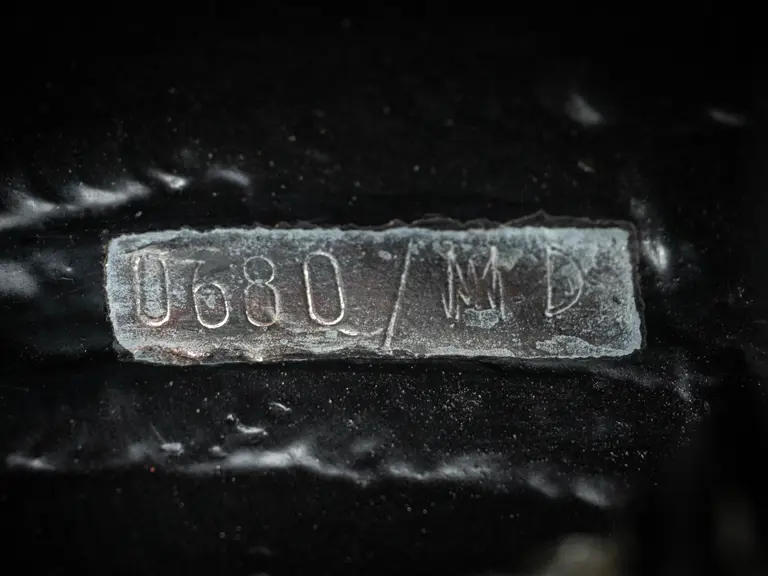
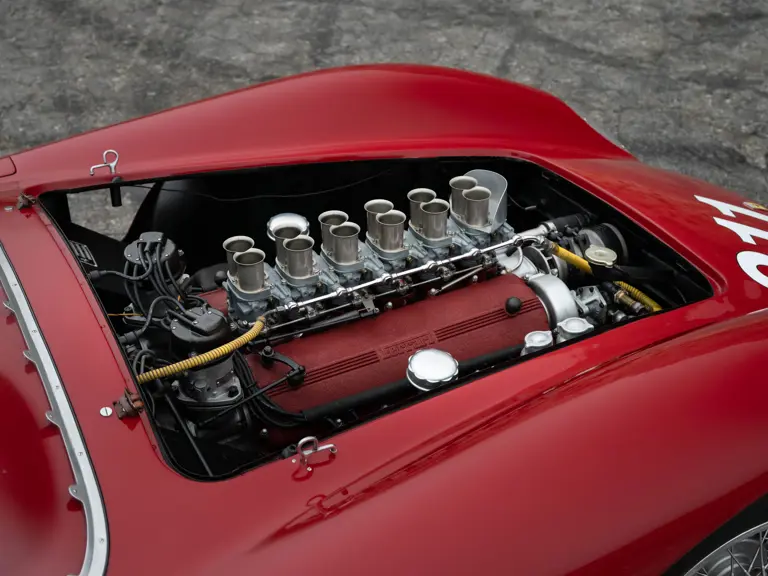
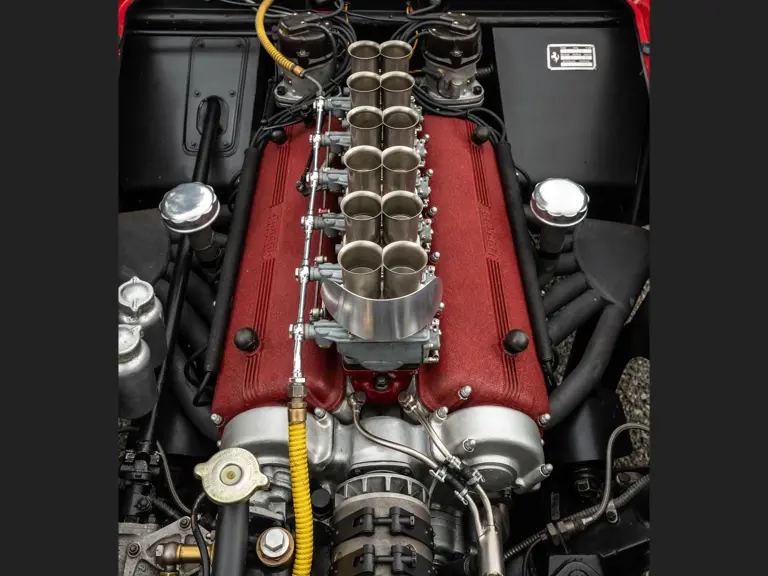
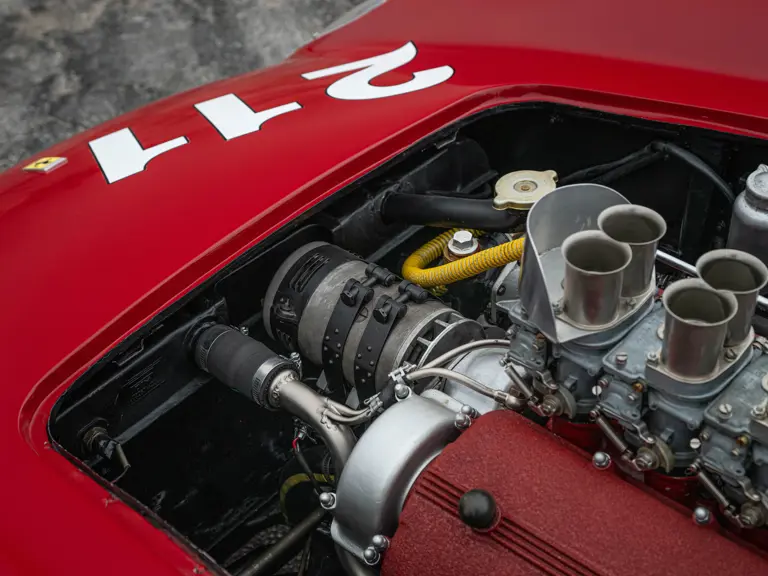
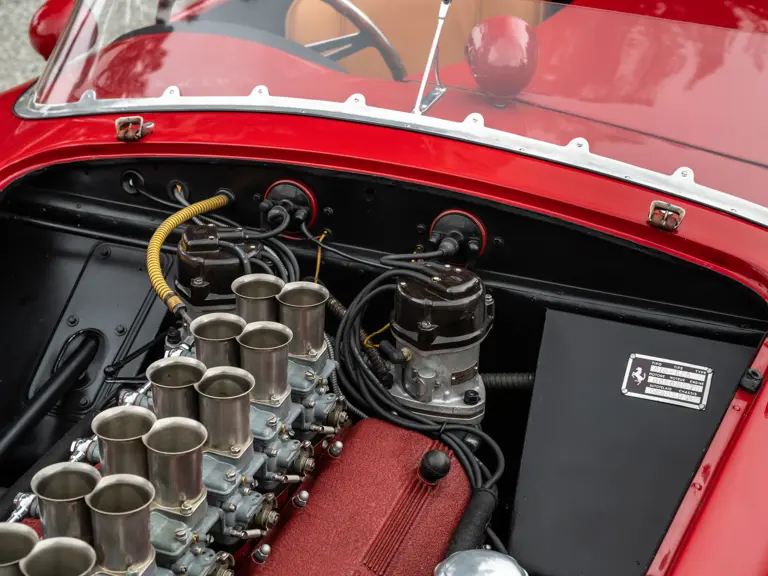
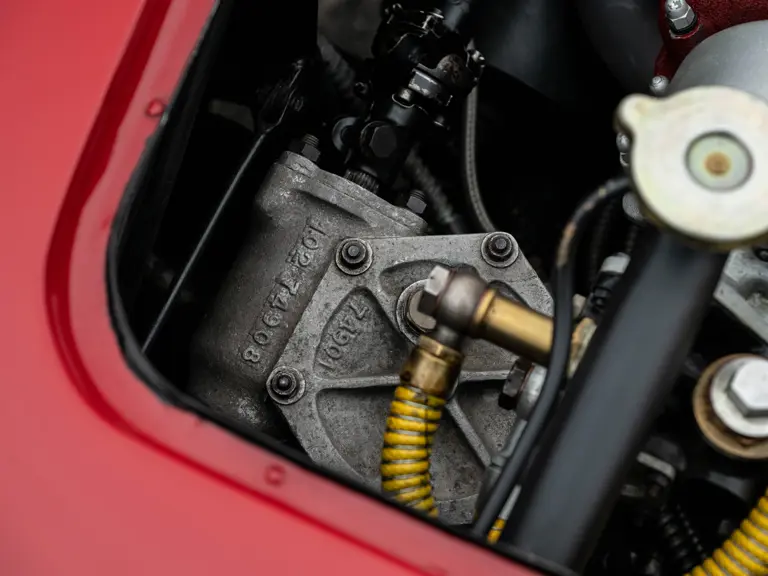
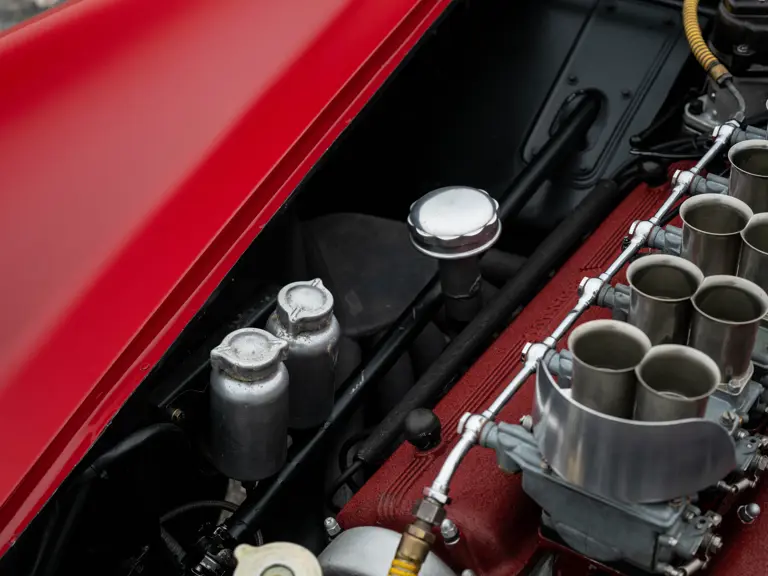
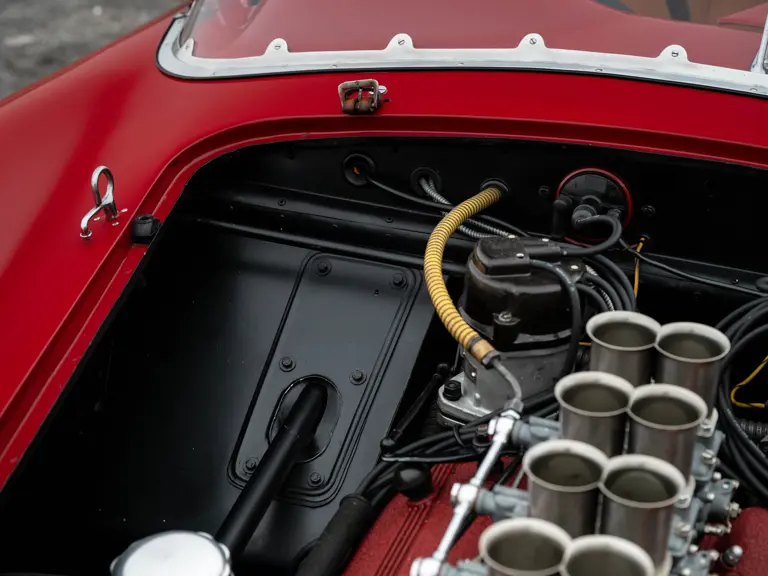
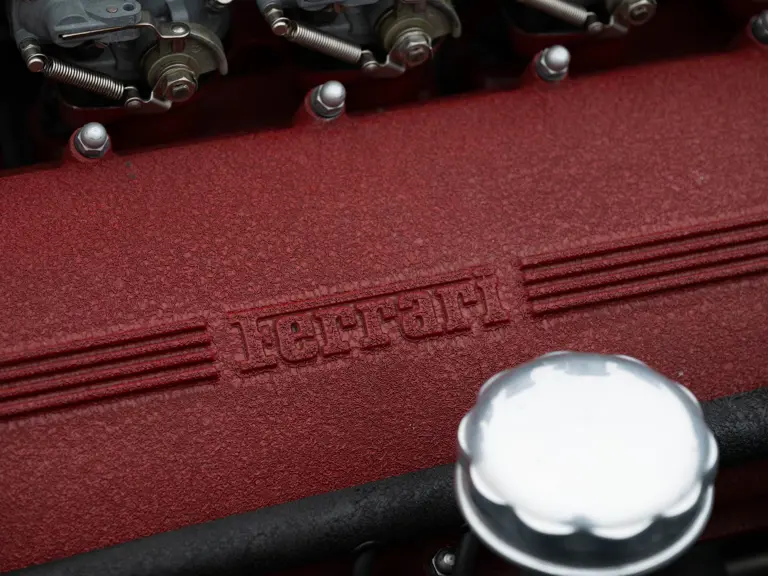
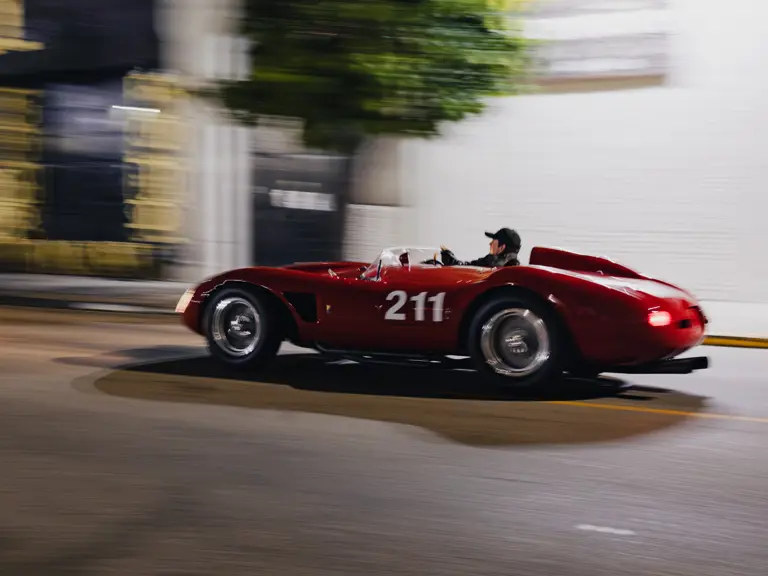
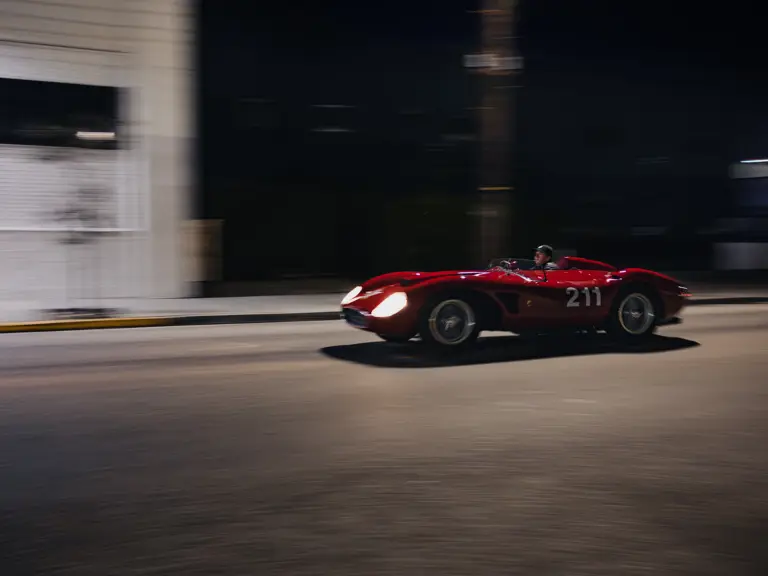
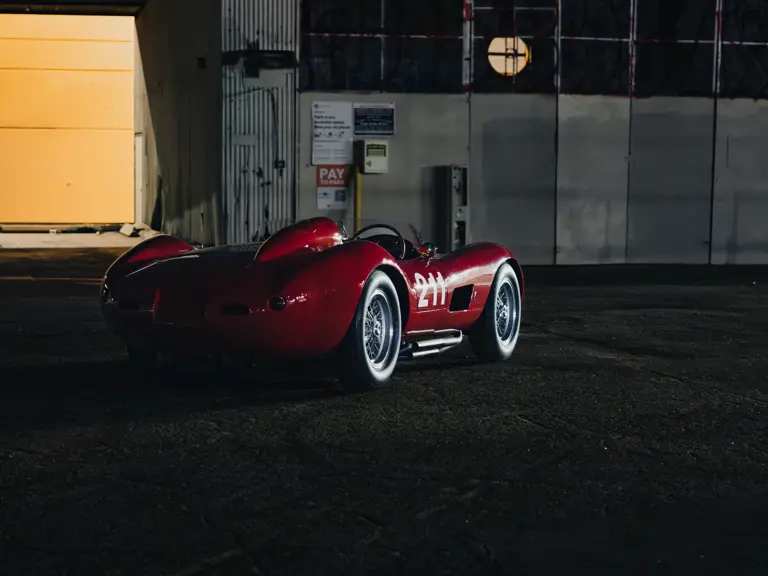
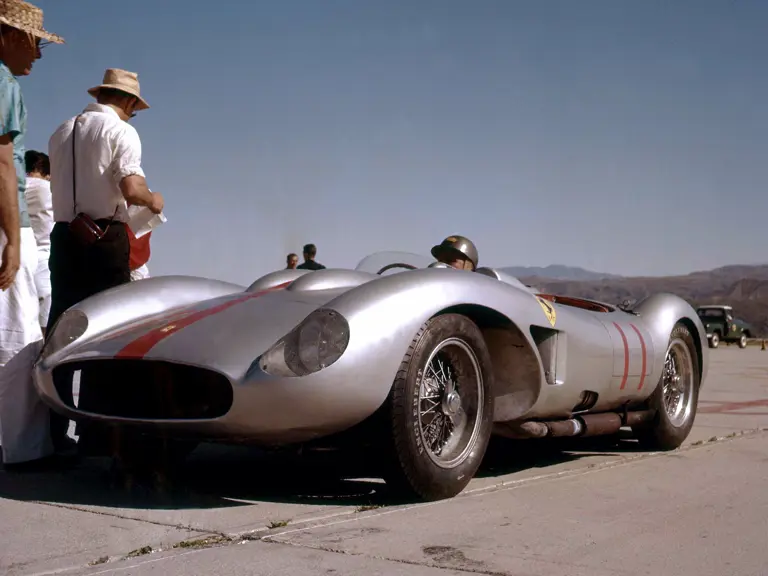
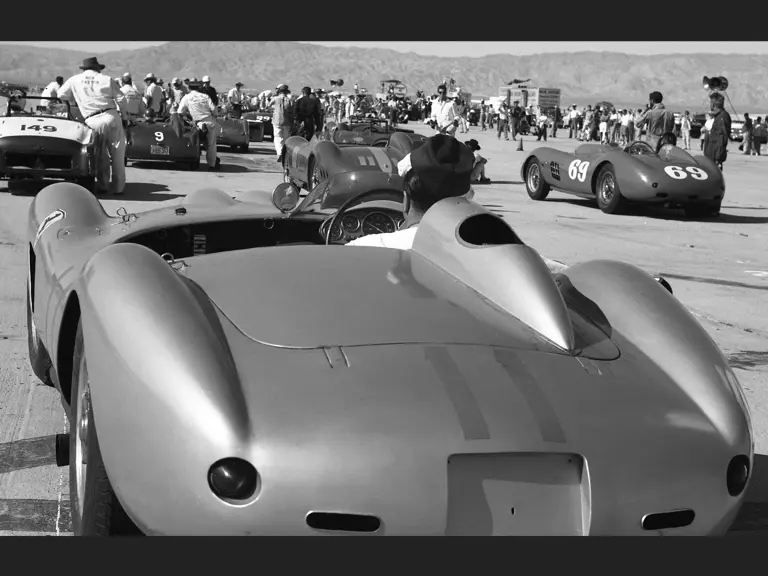
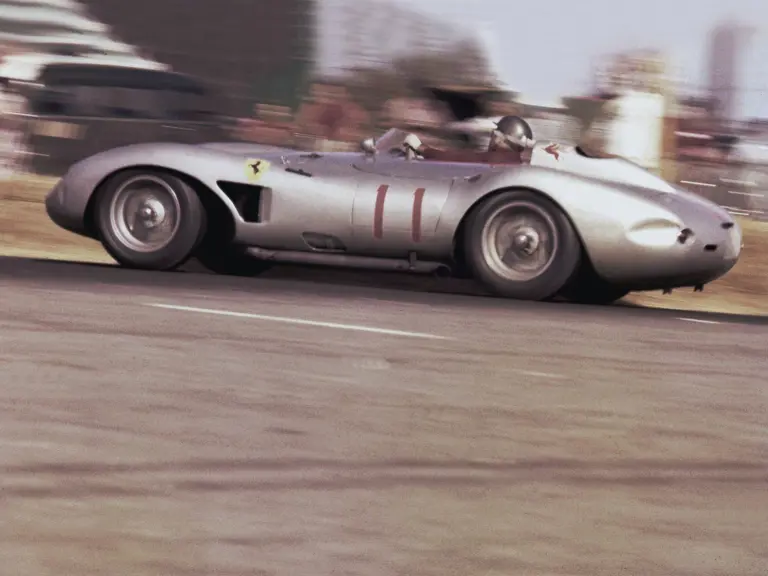
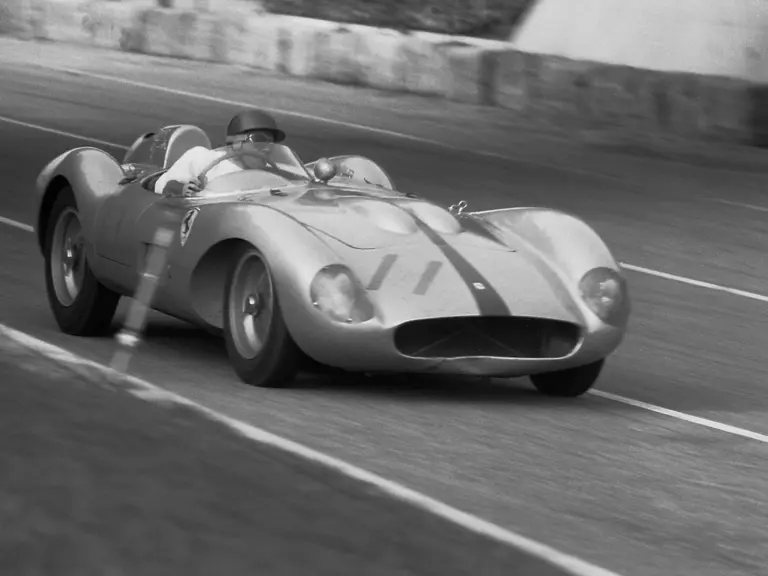
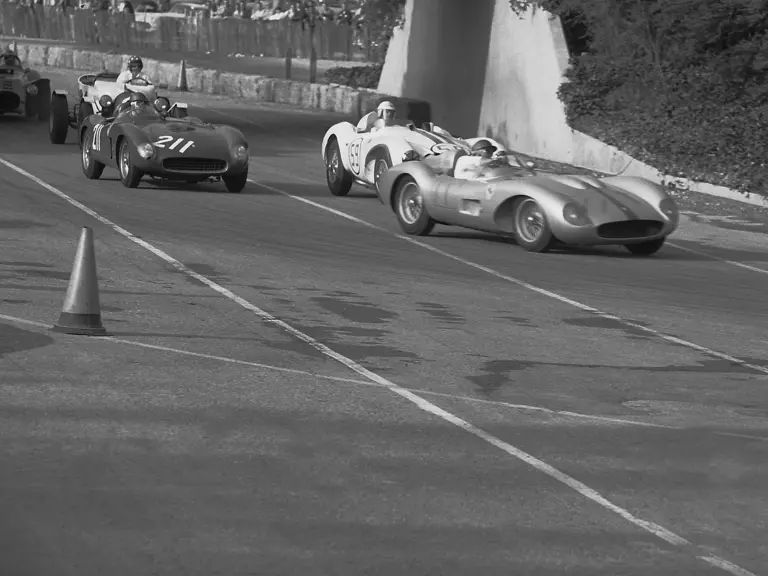
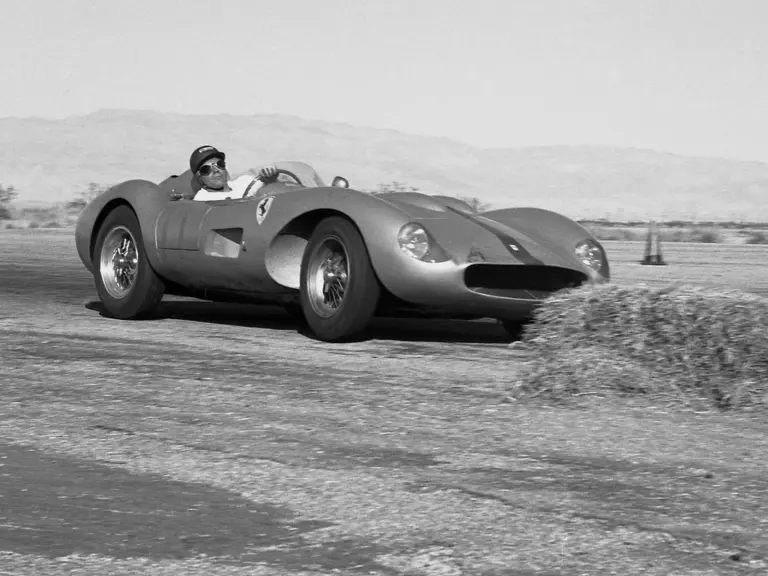
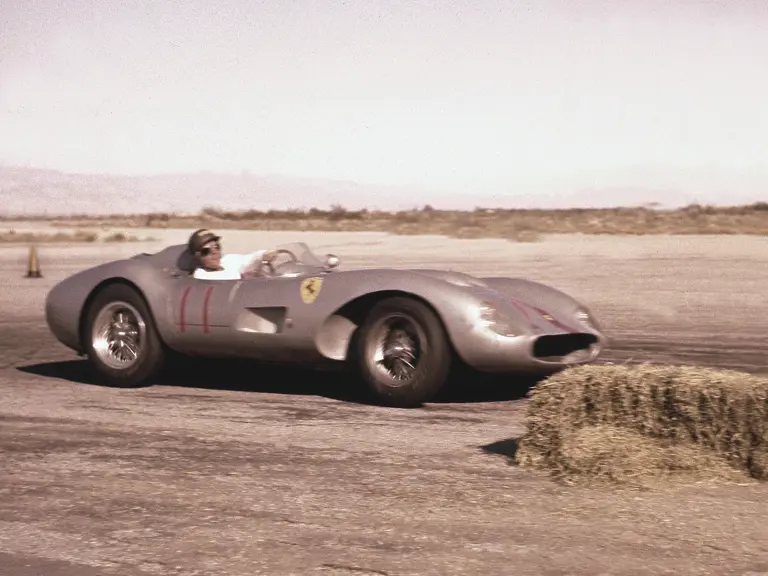
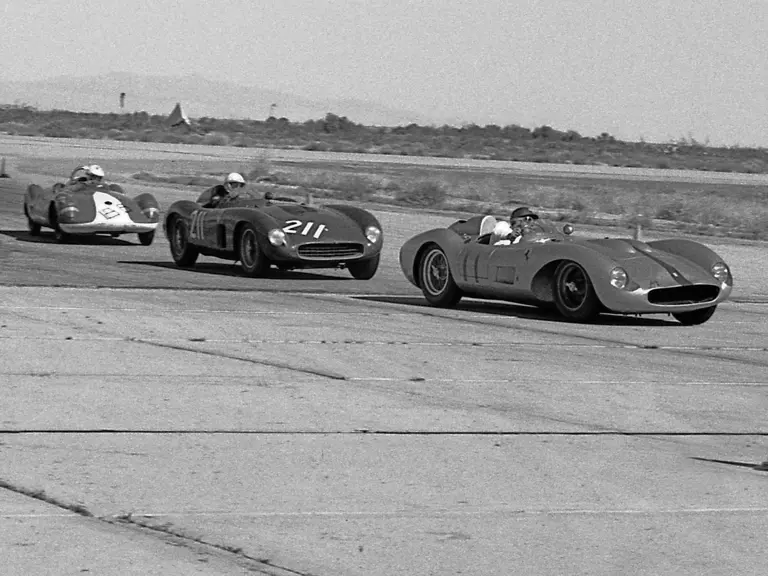
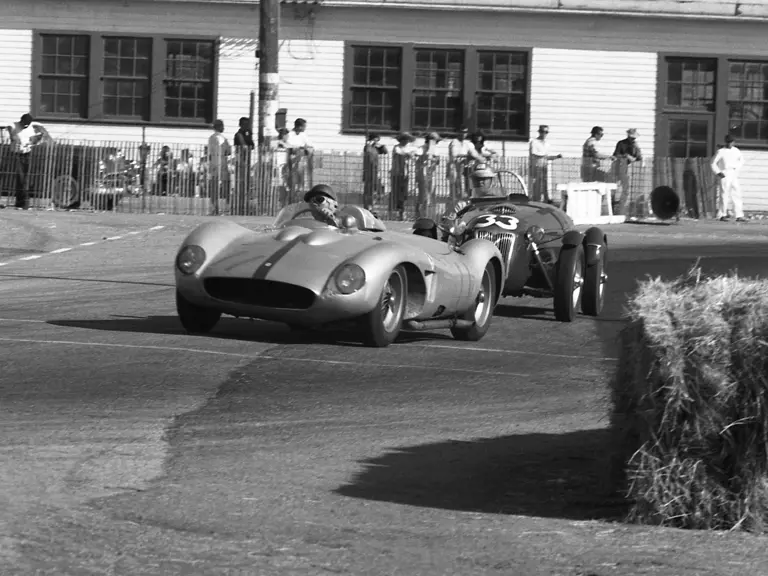
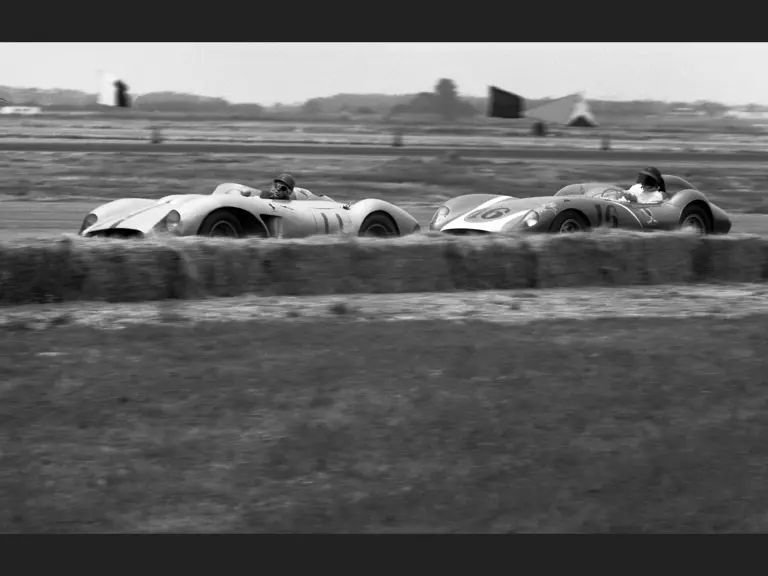
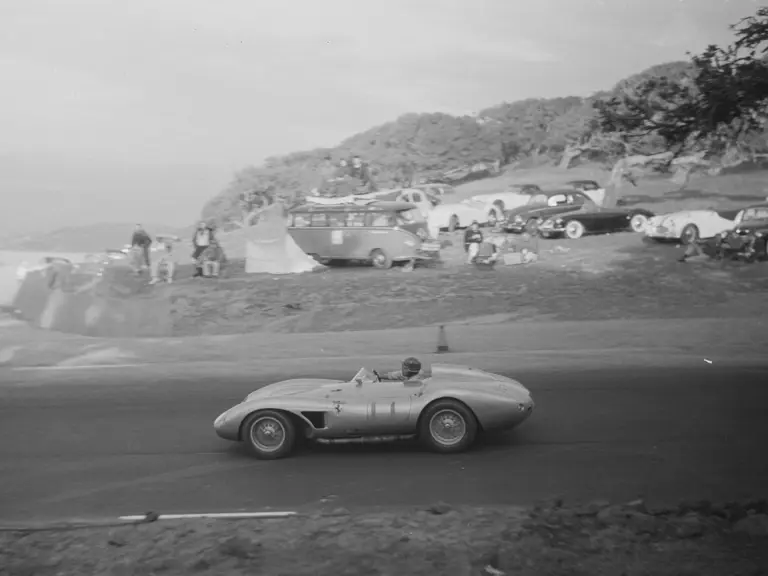
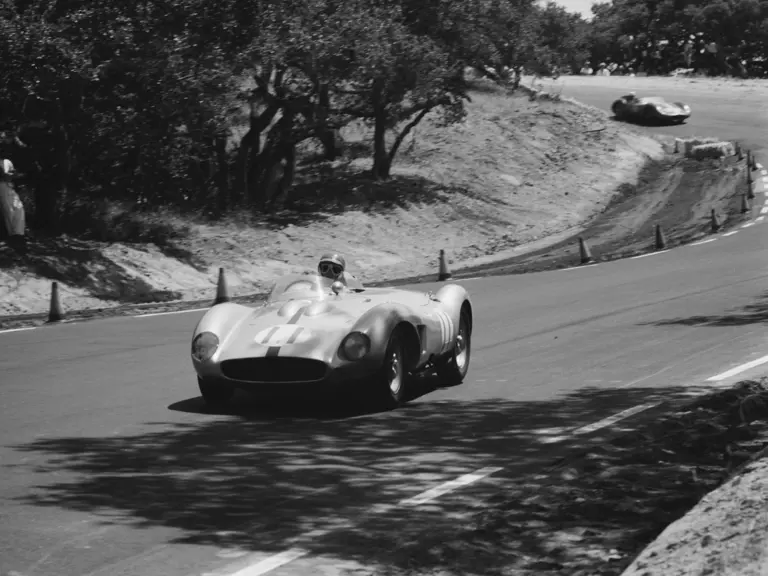
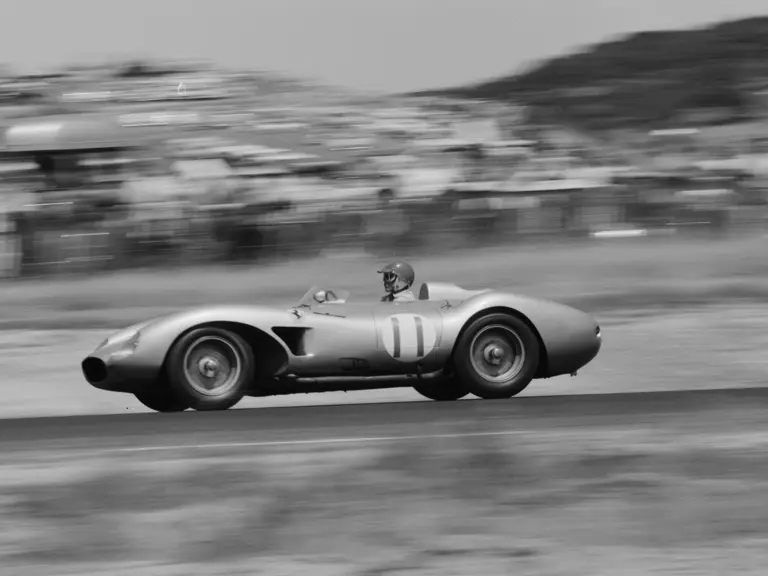
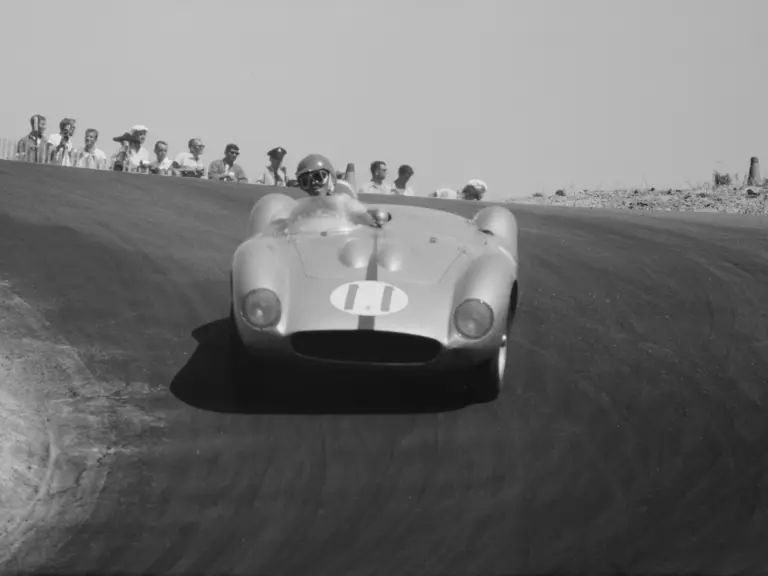
 | Monterey, California
| Monterey, California
